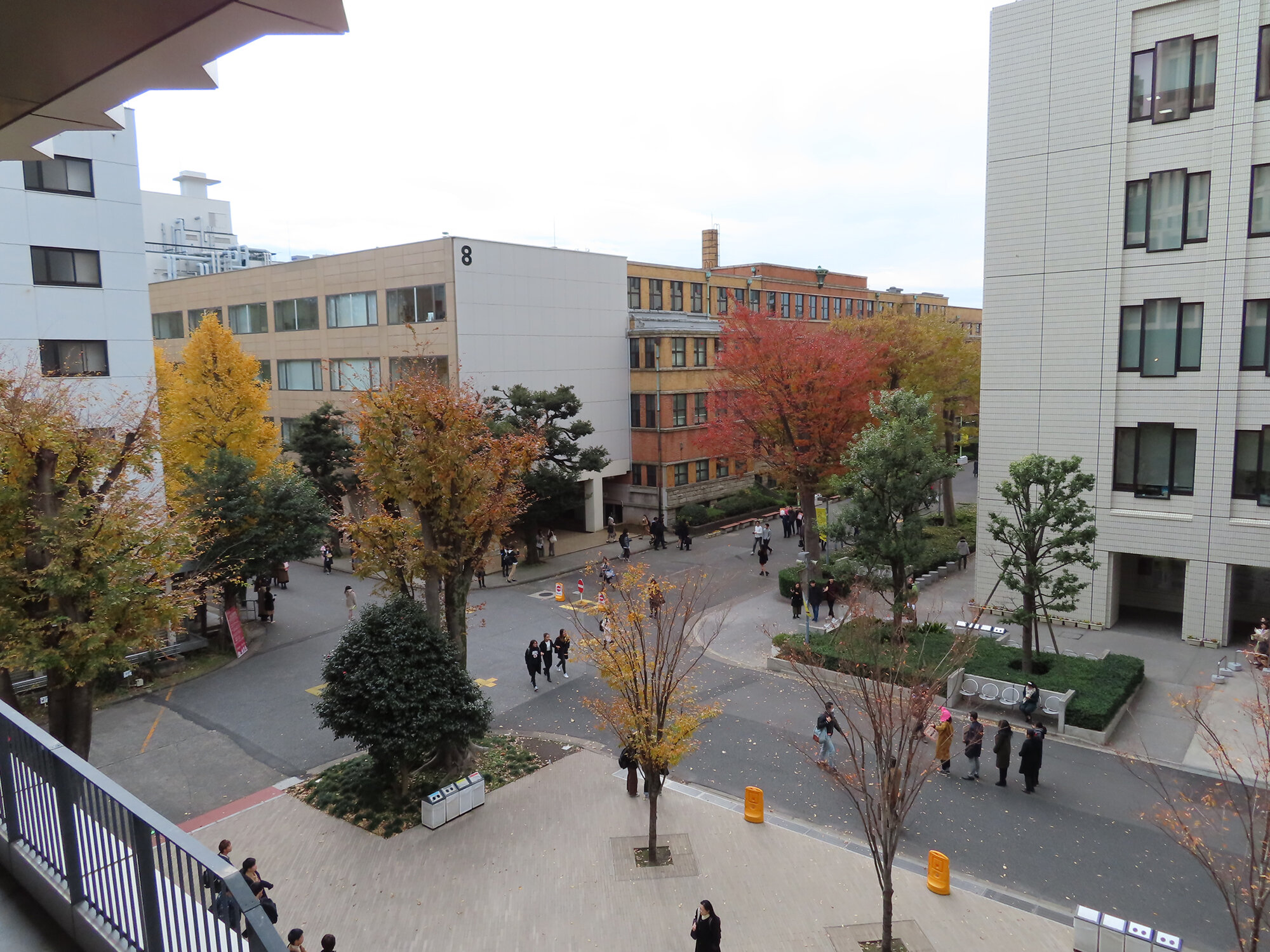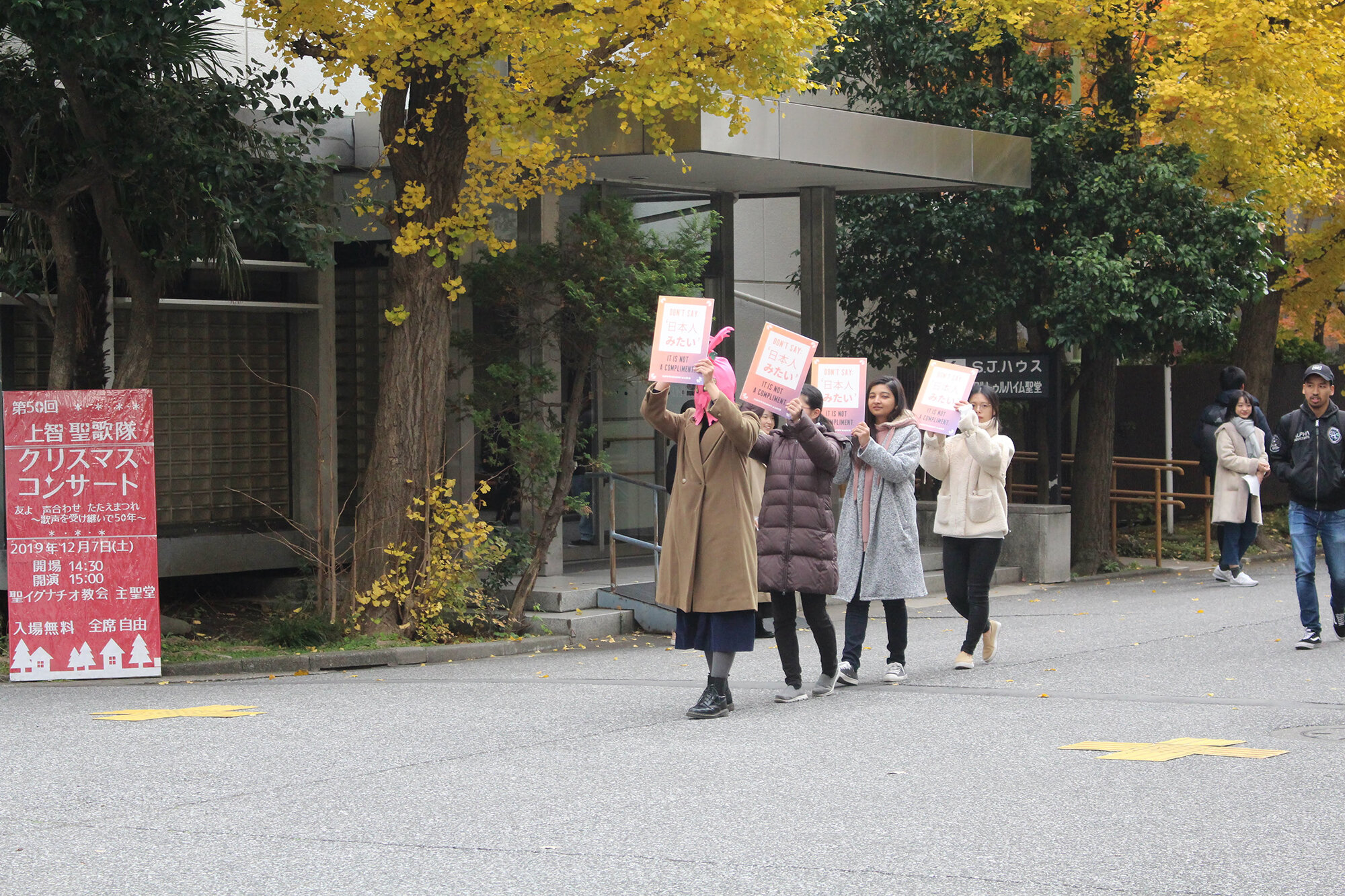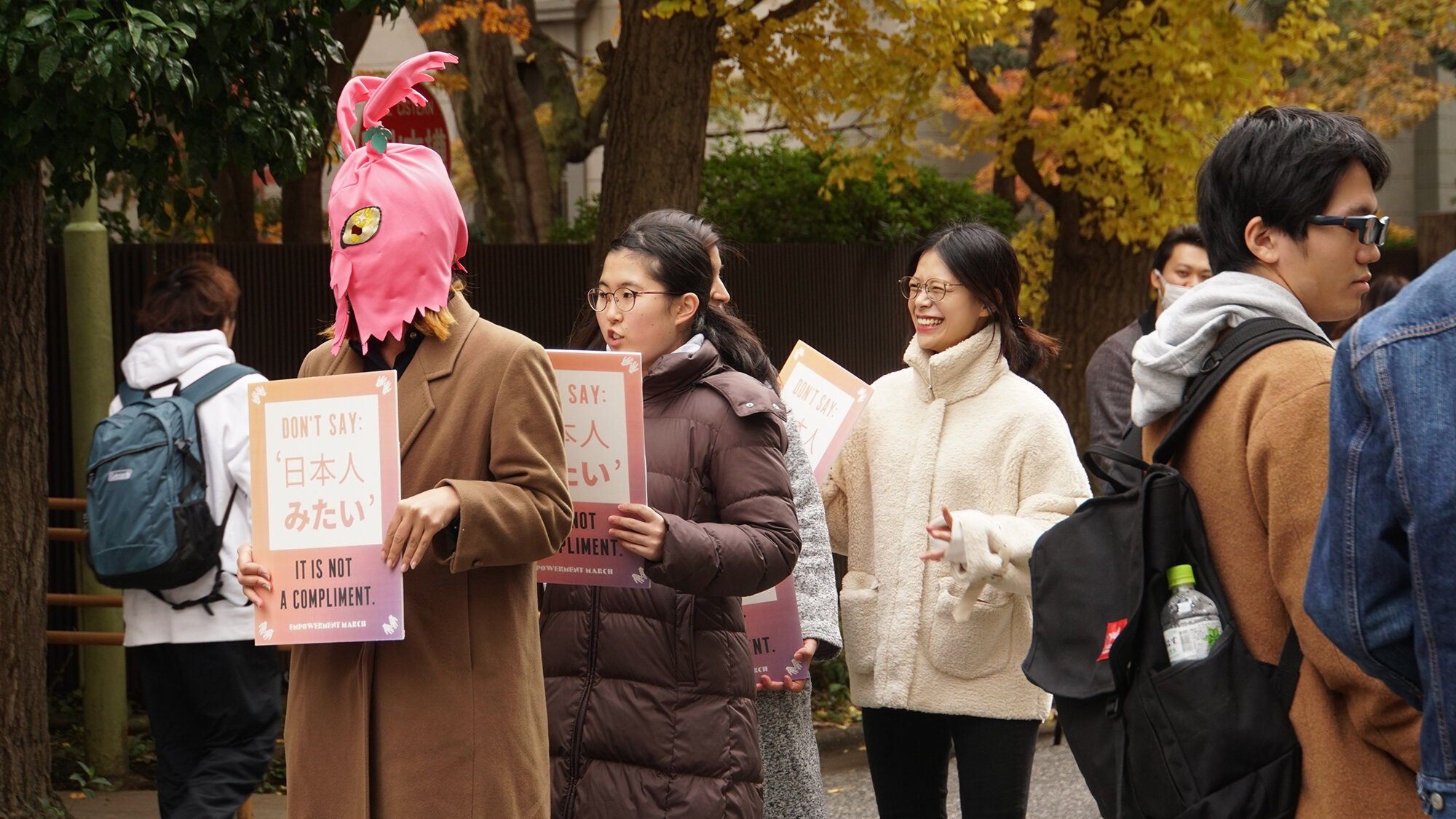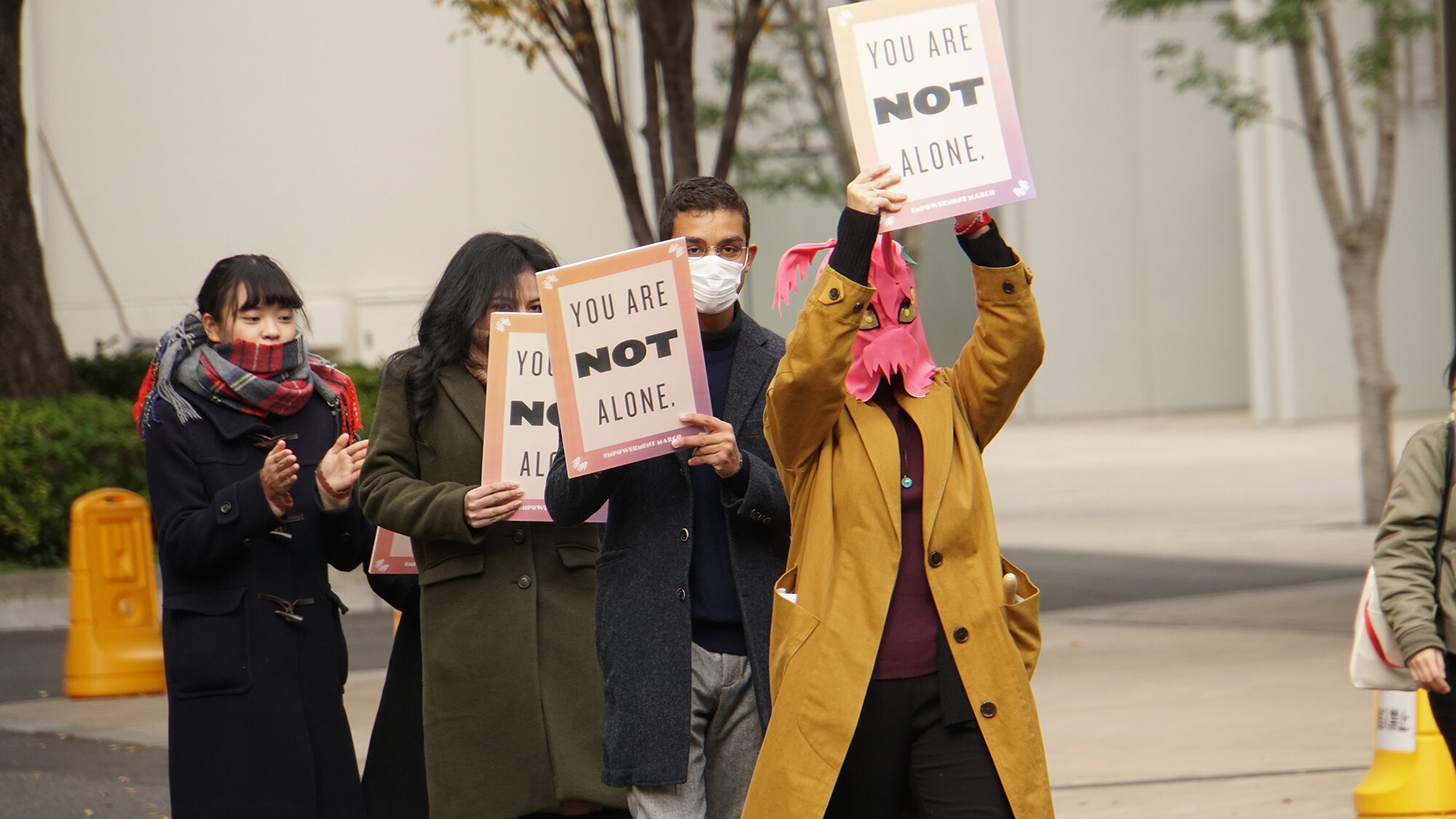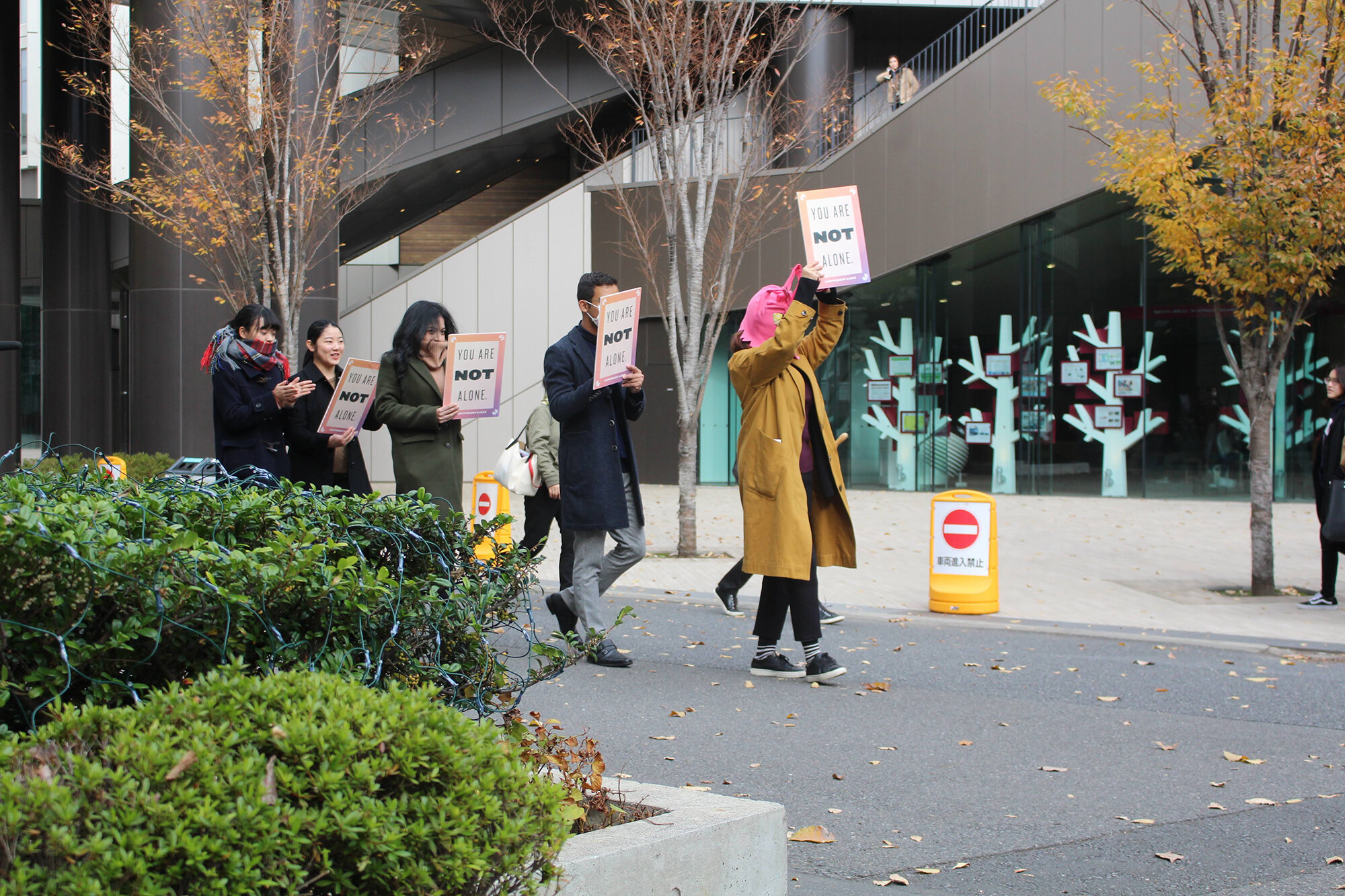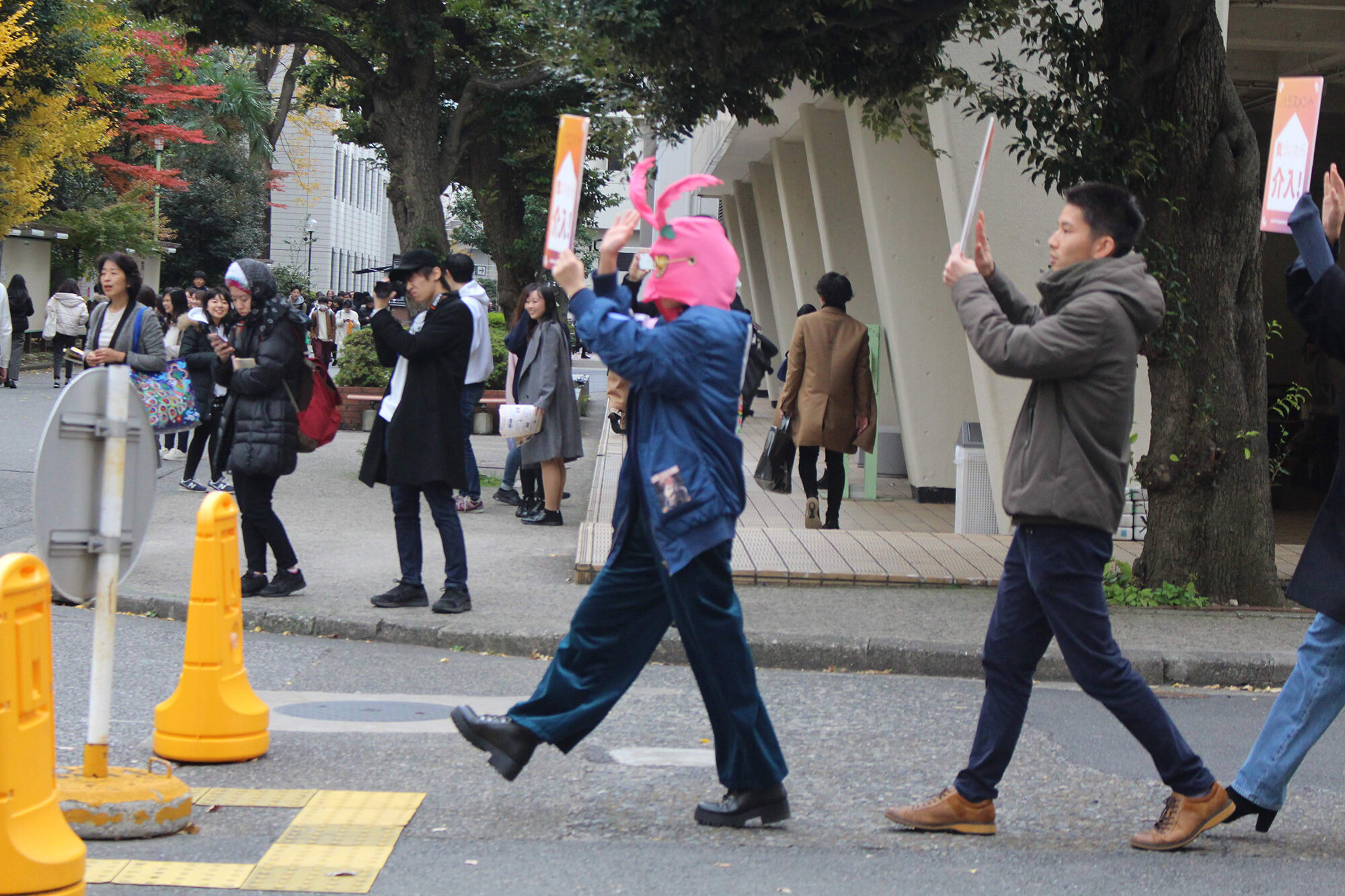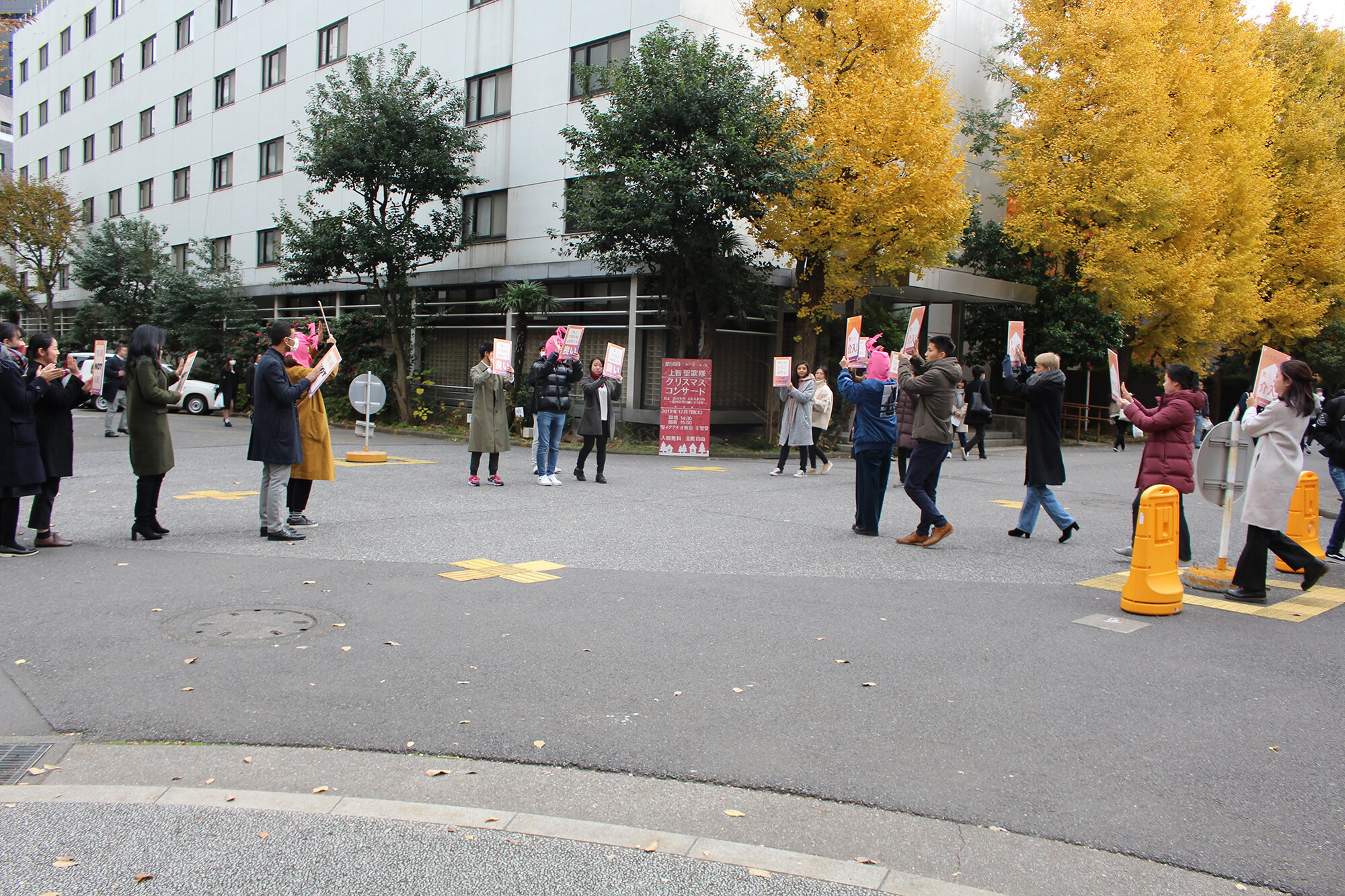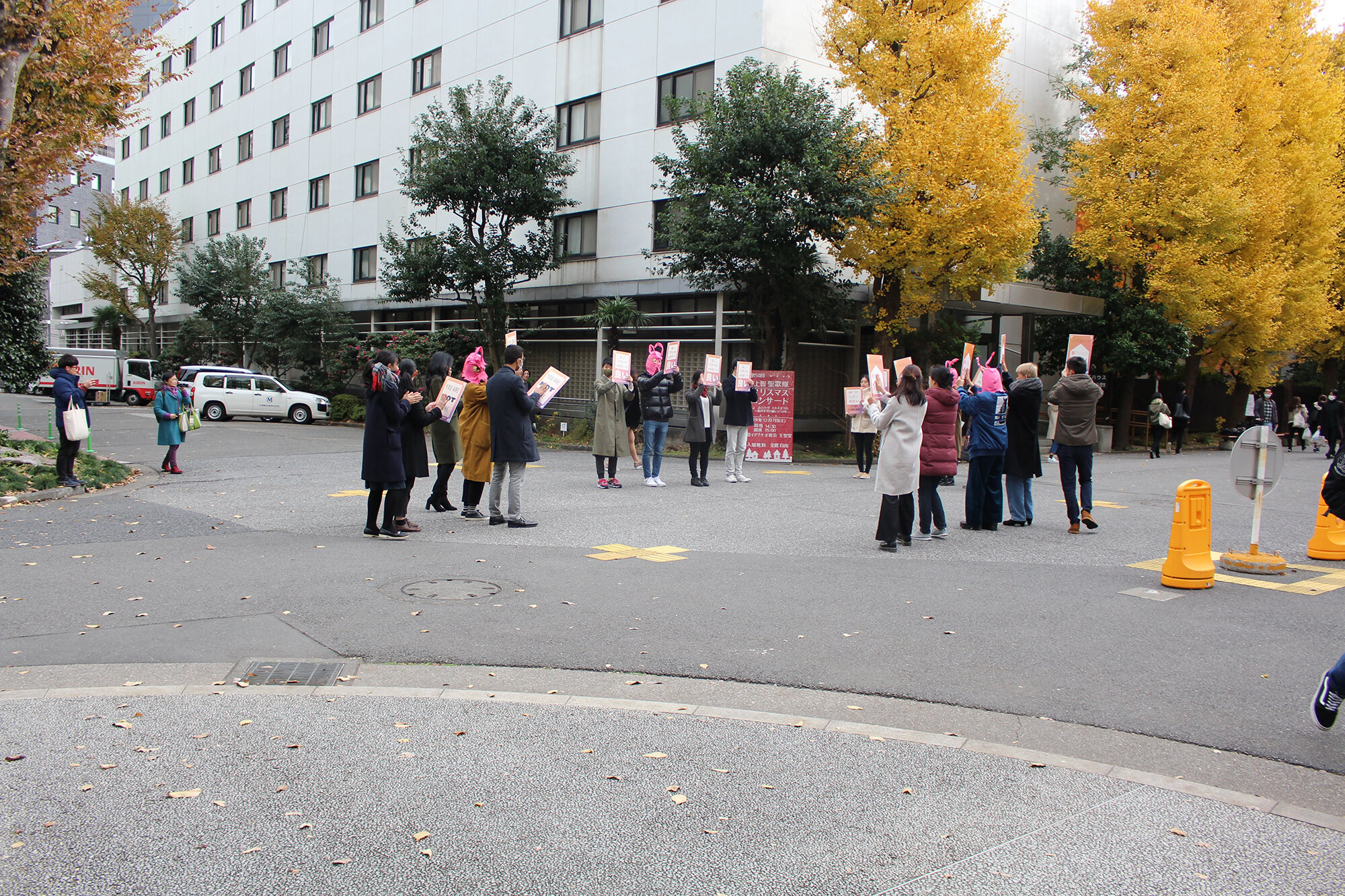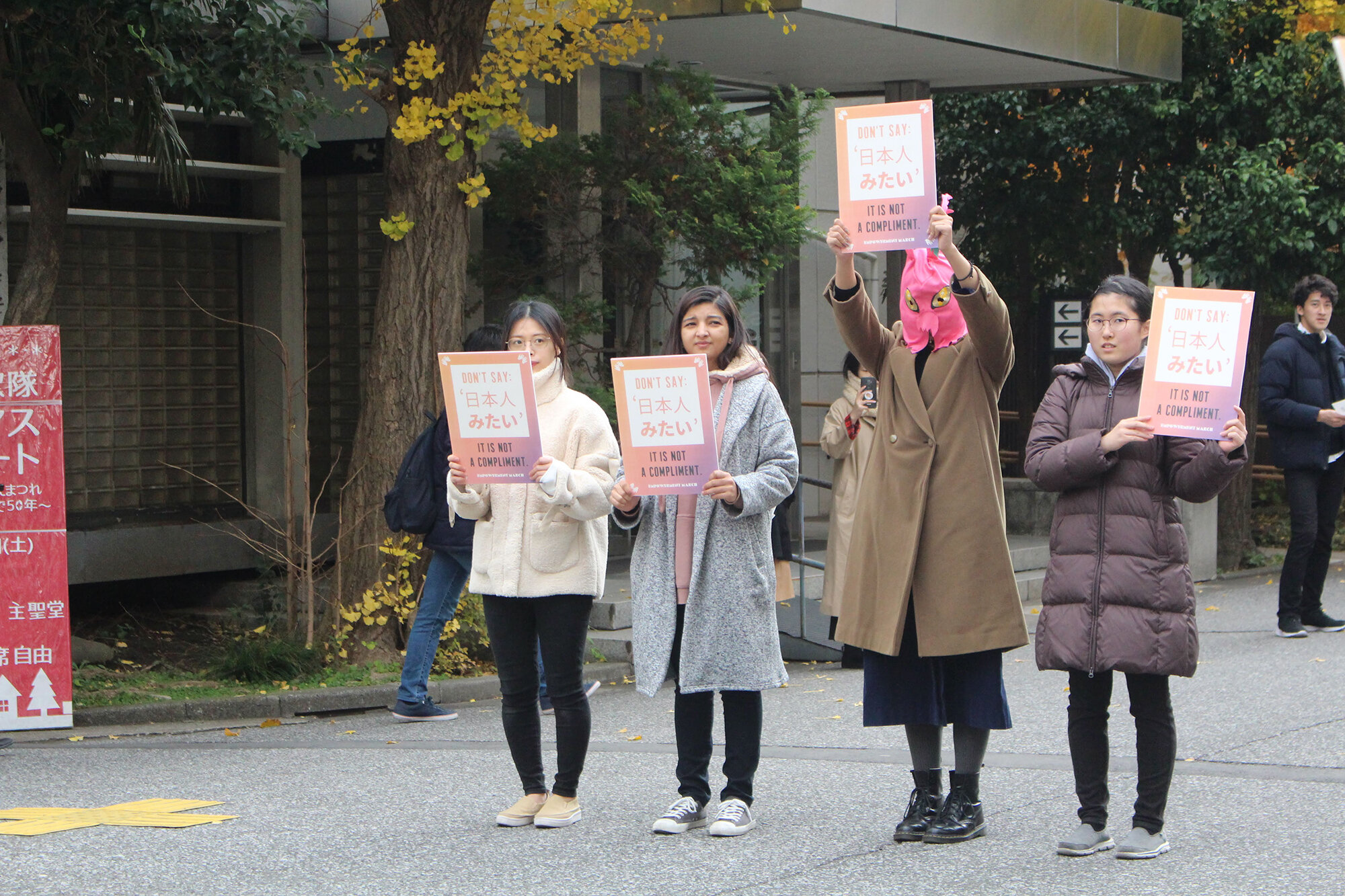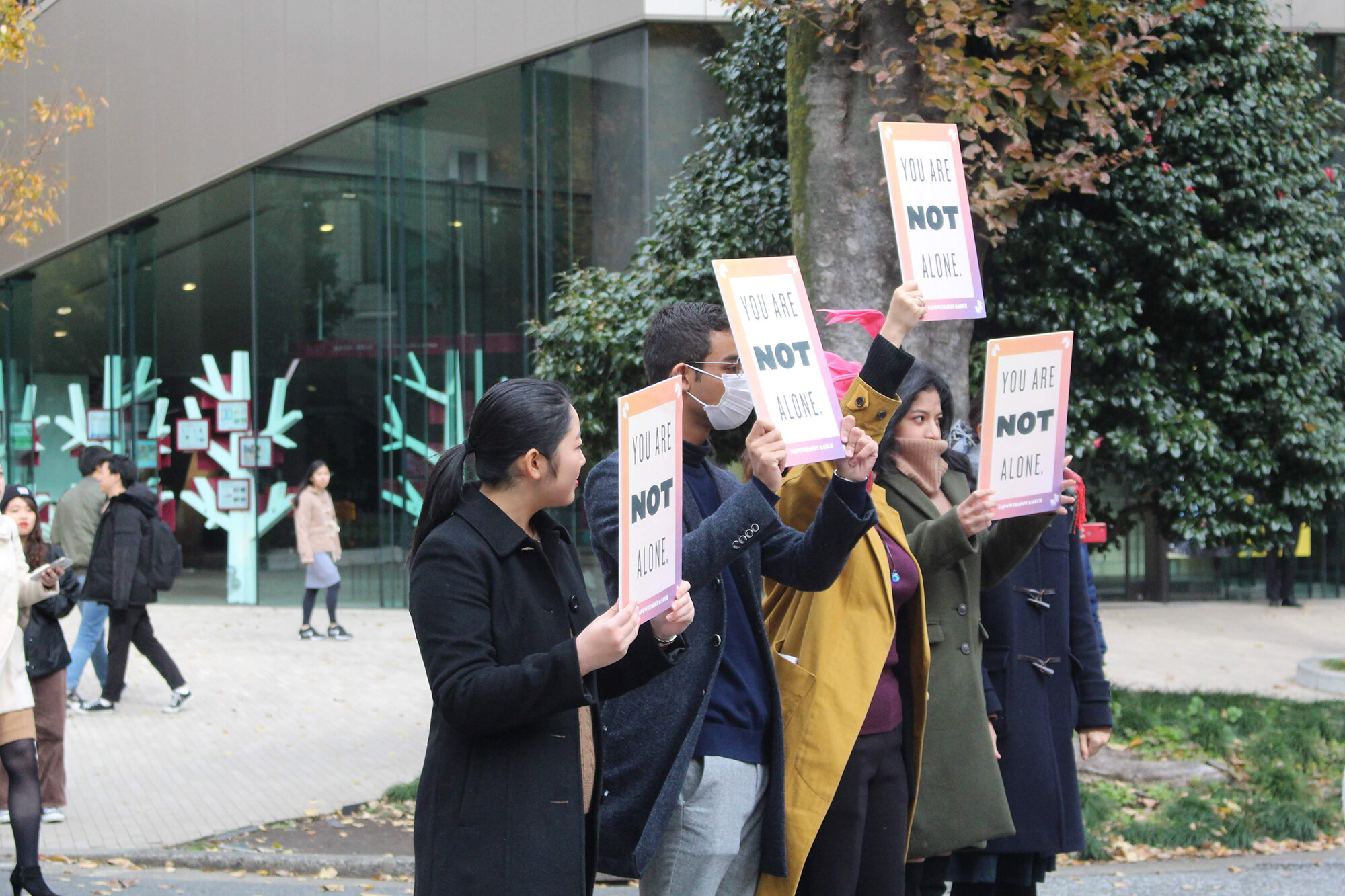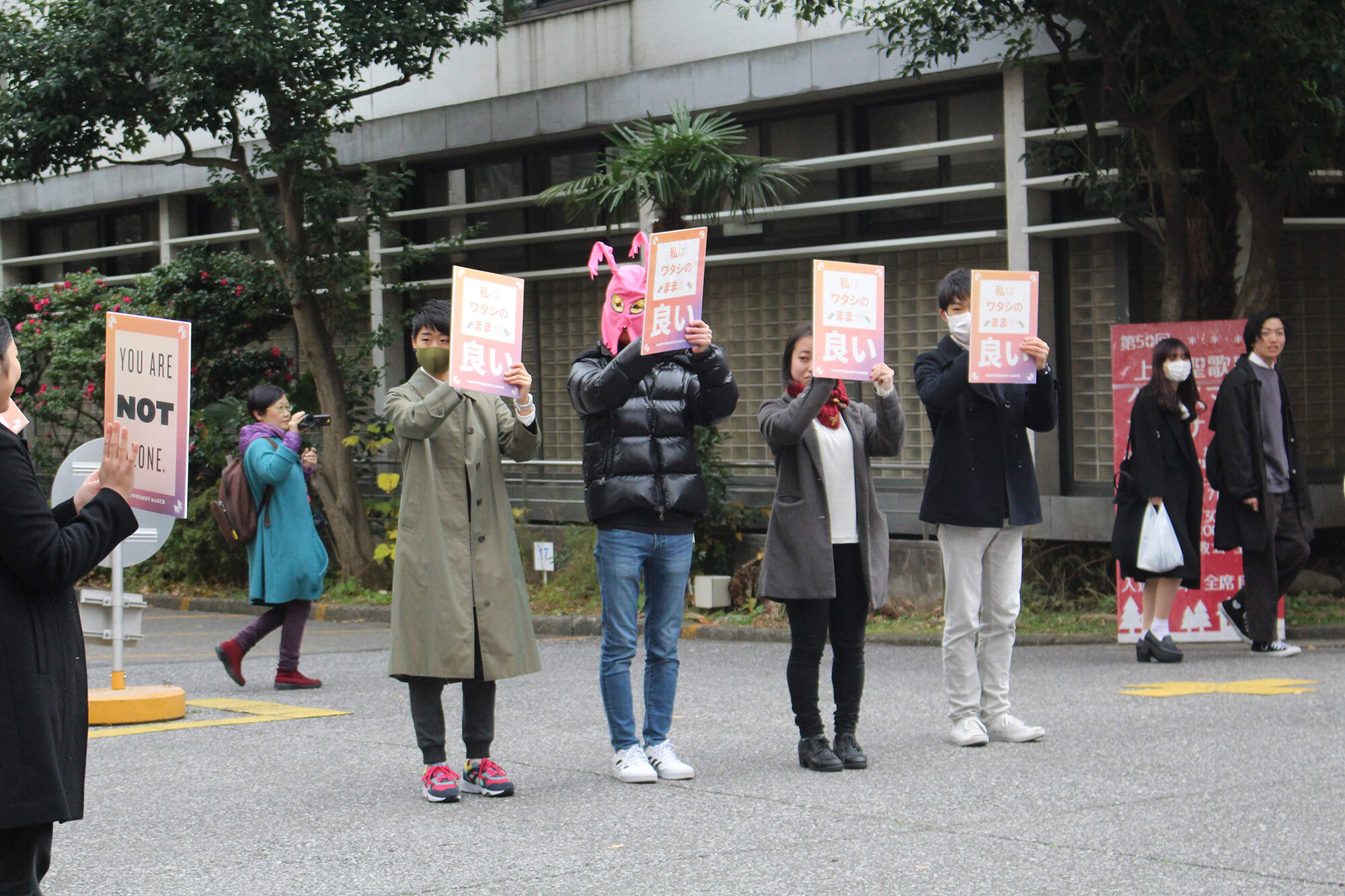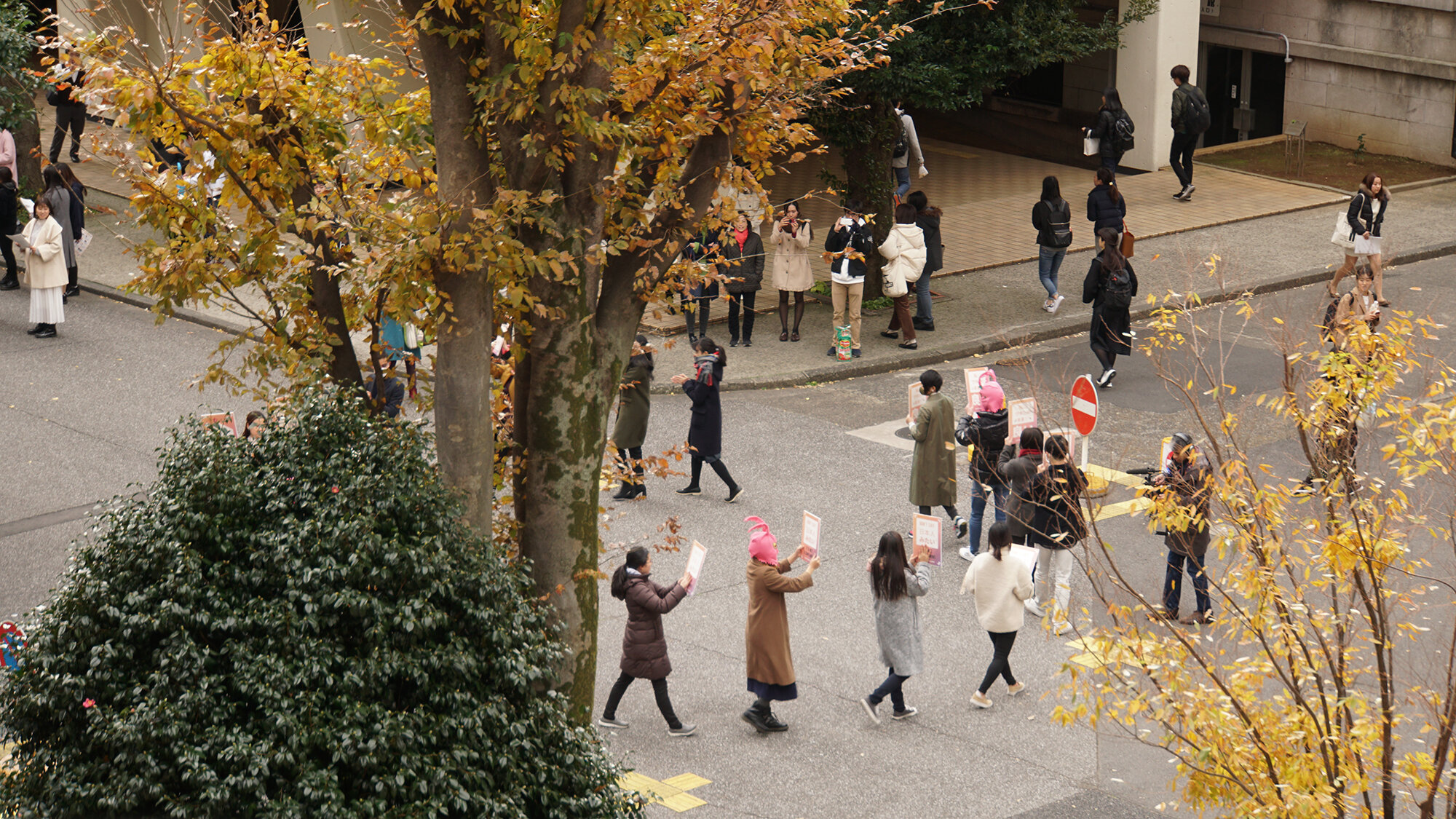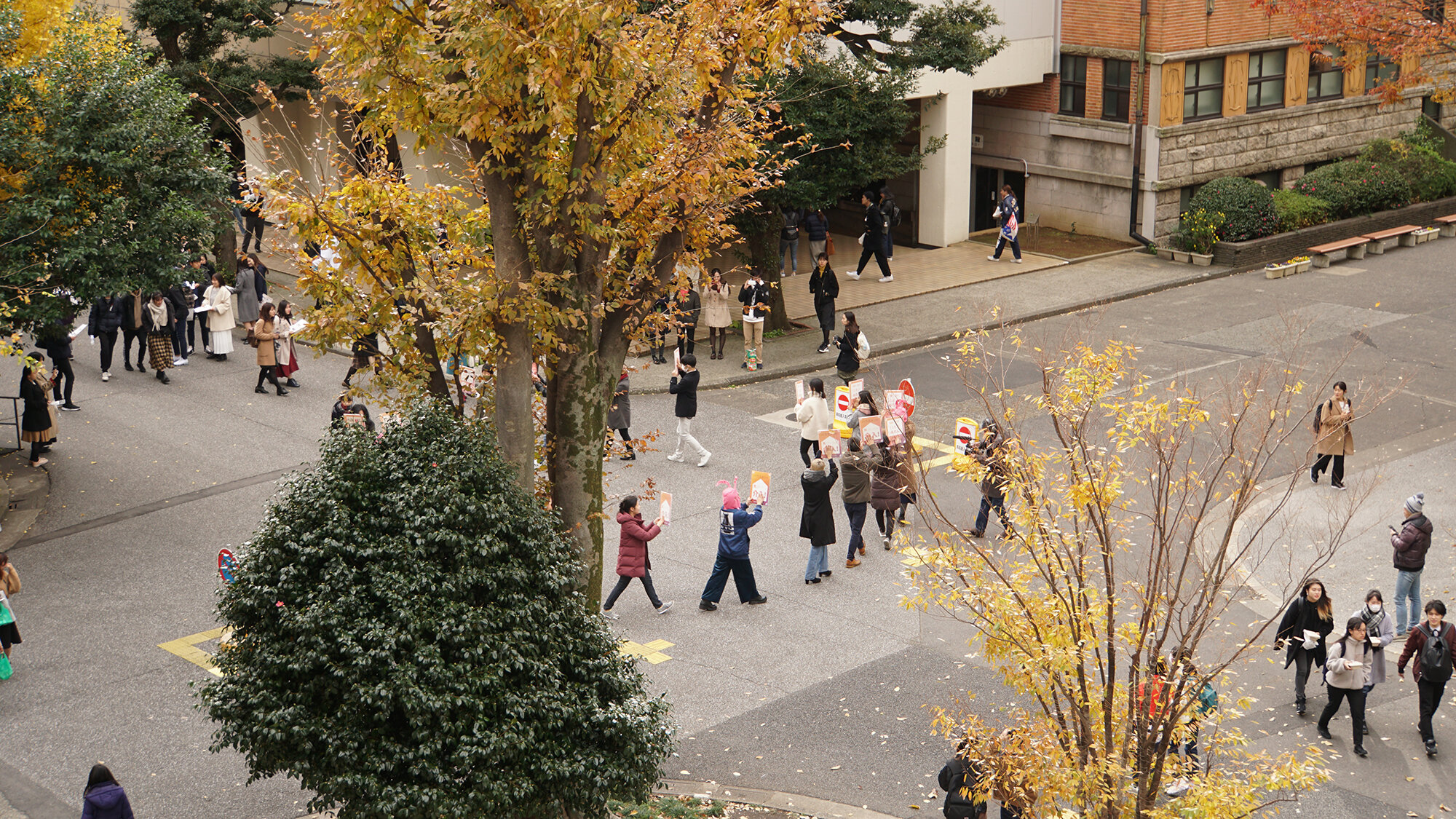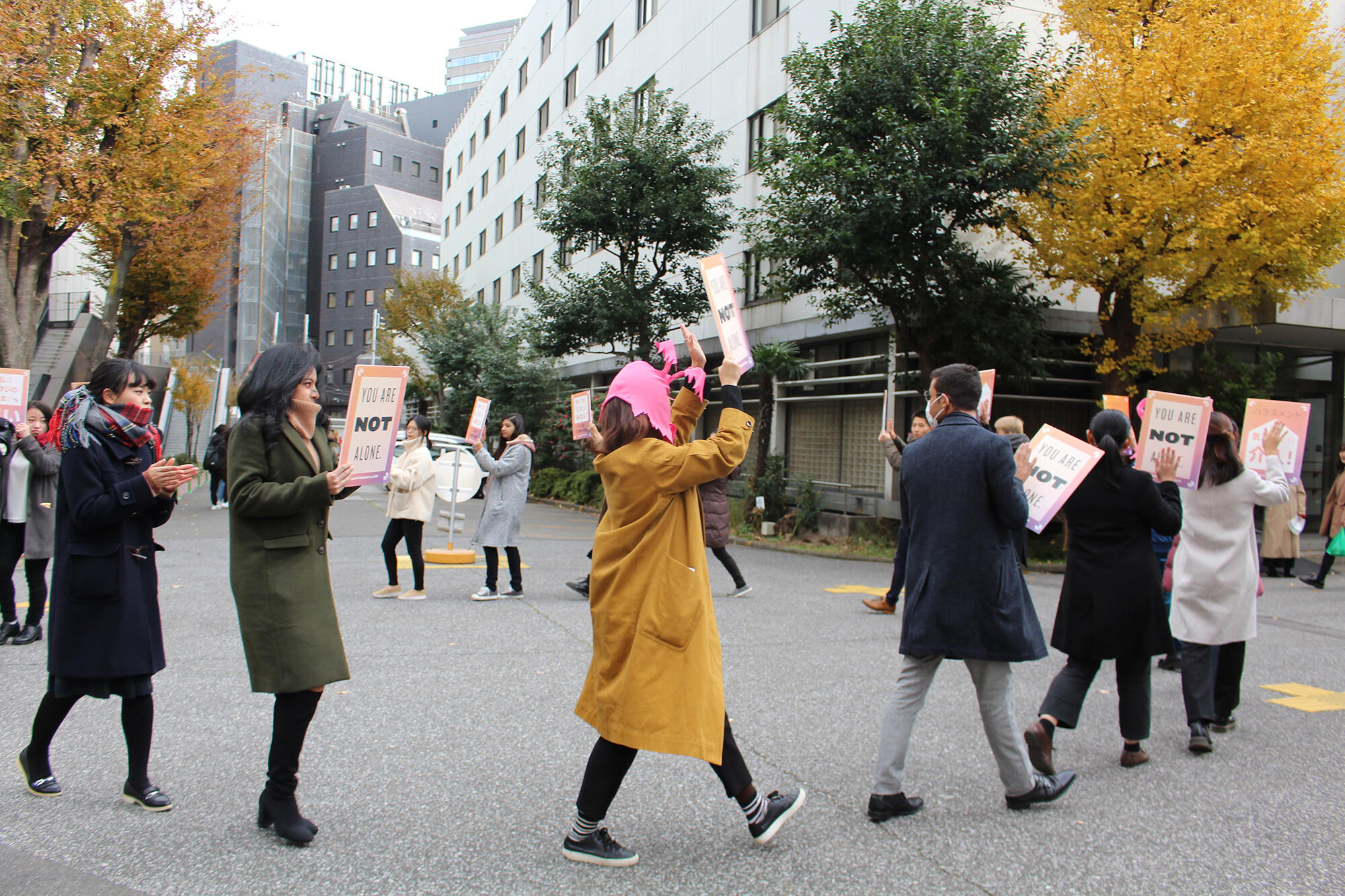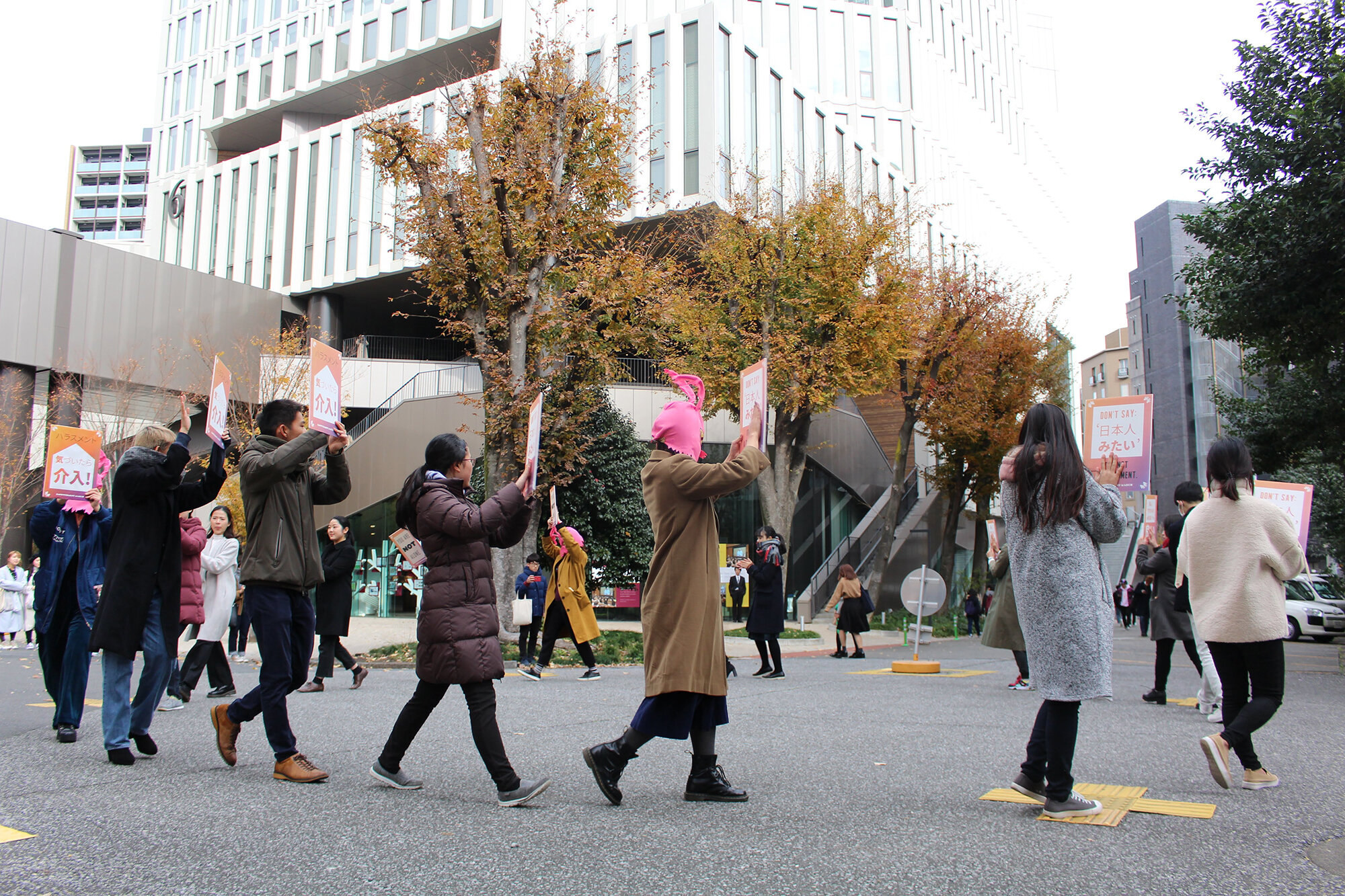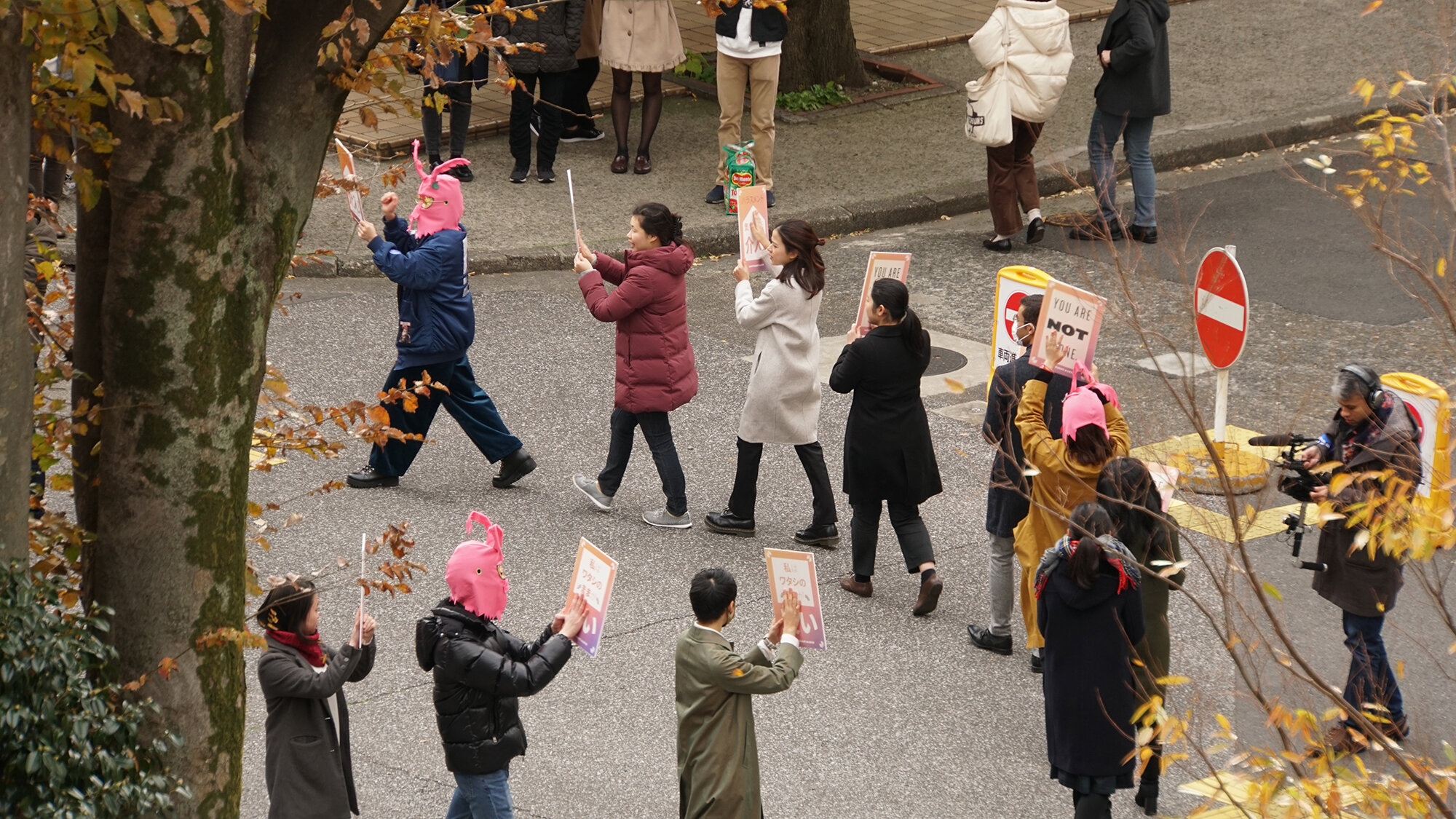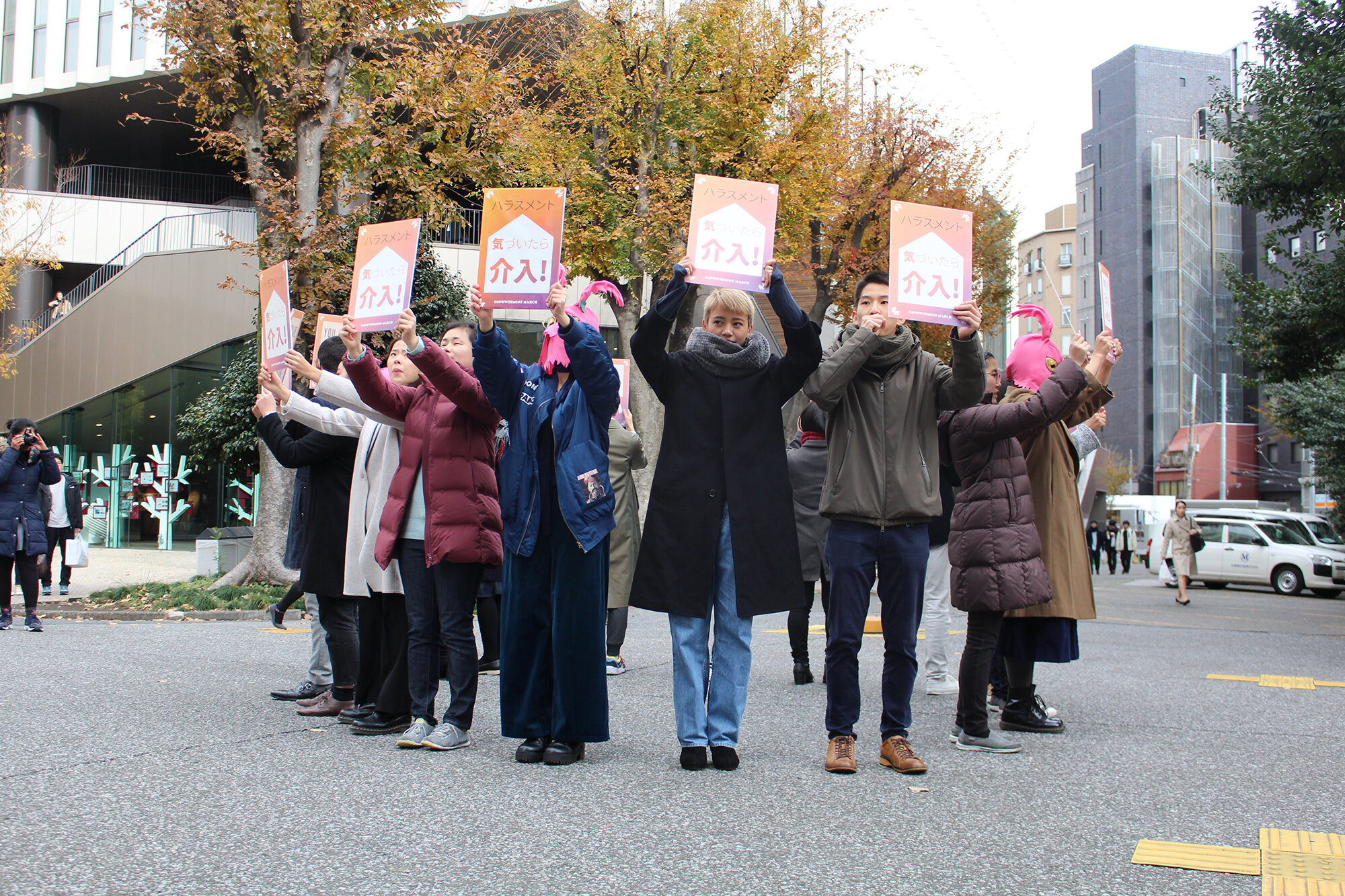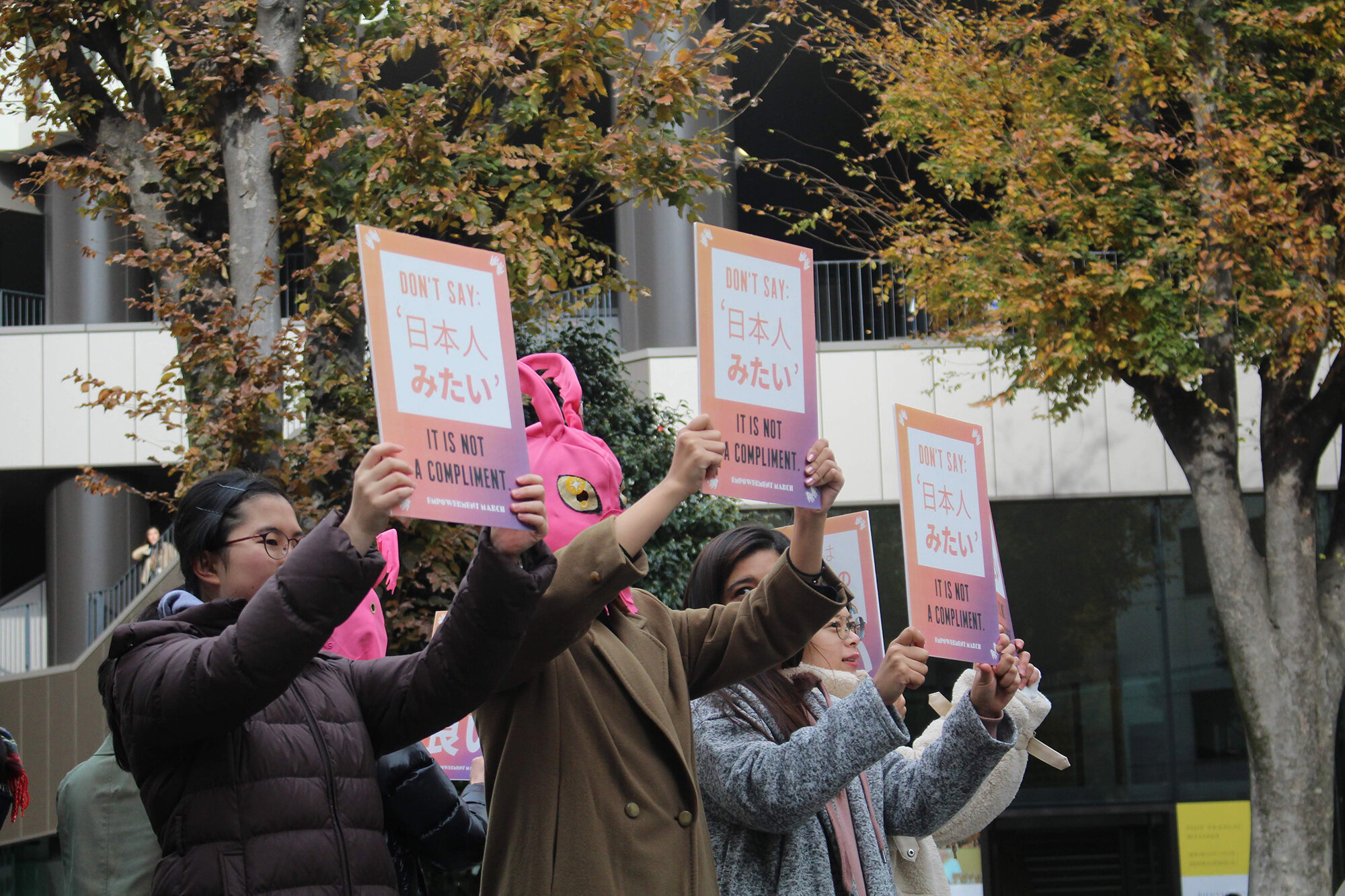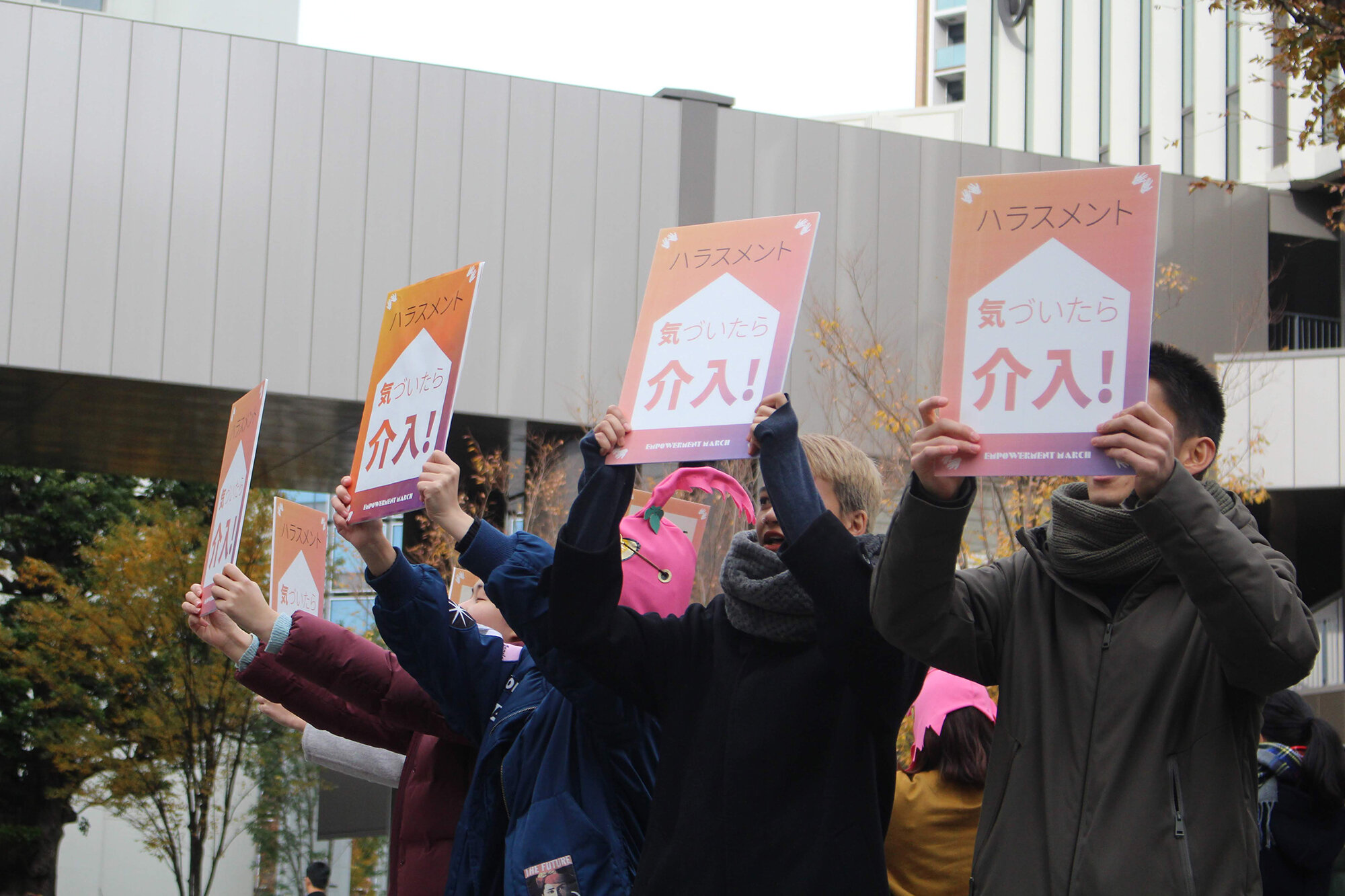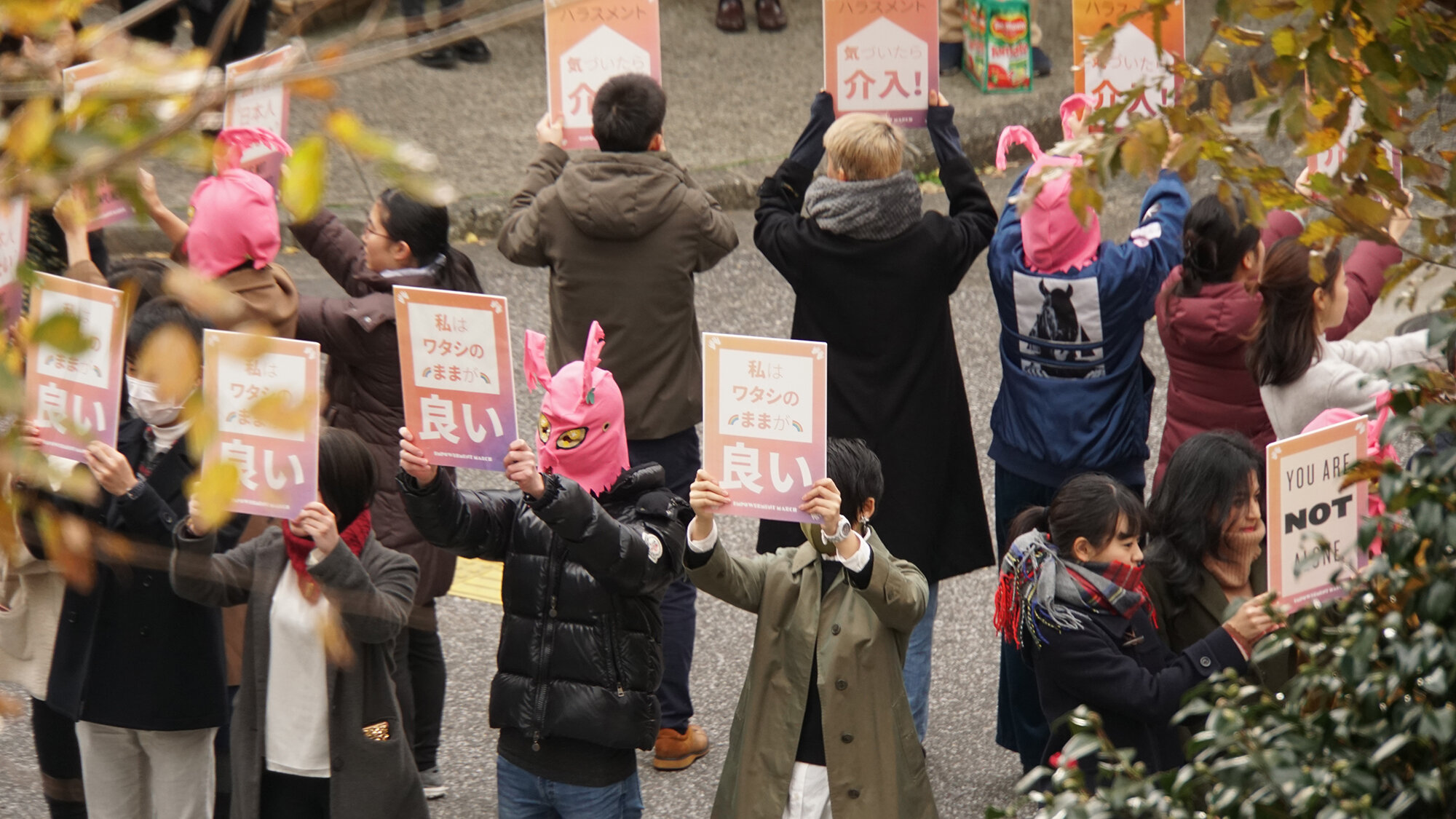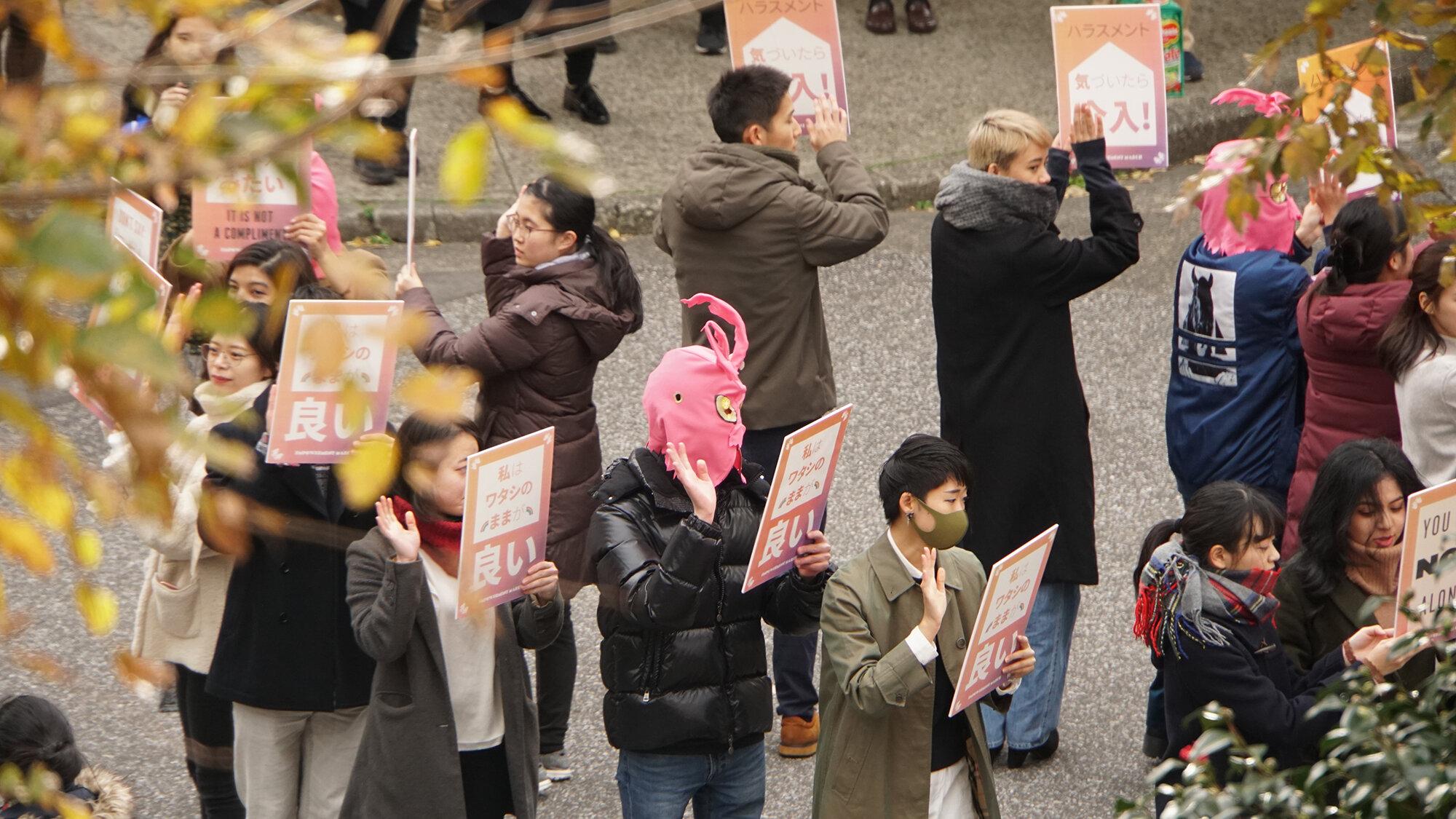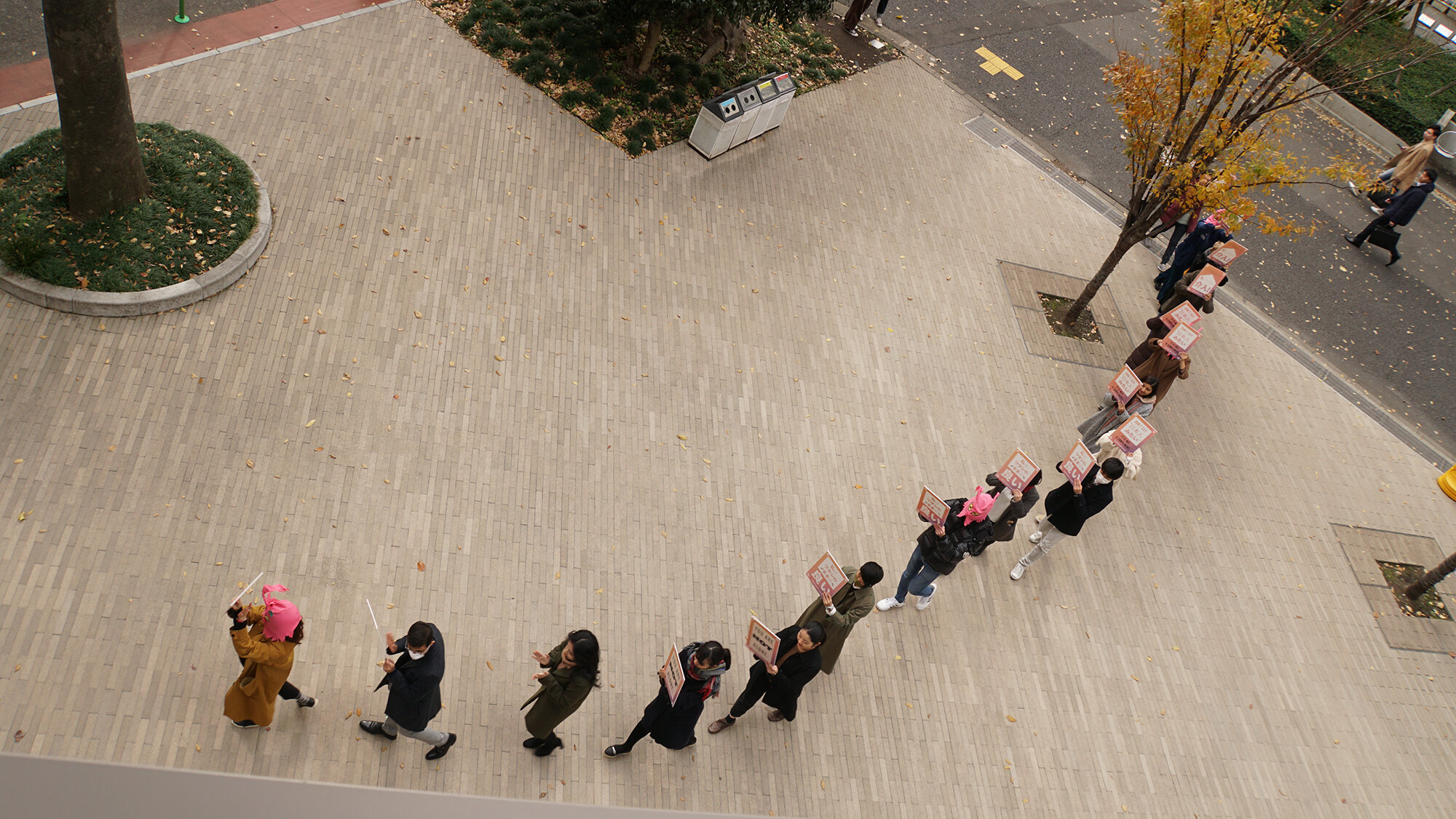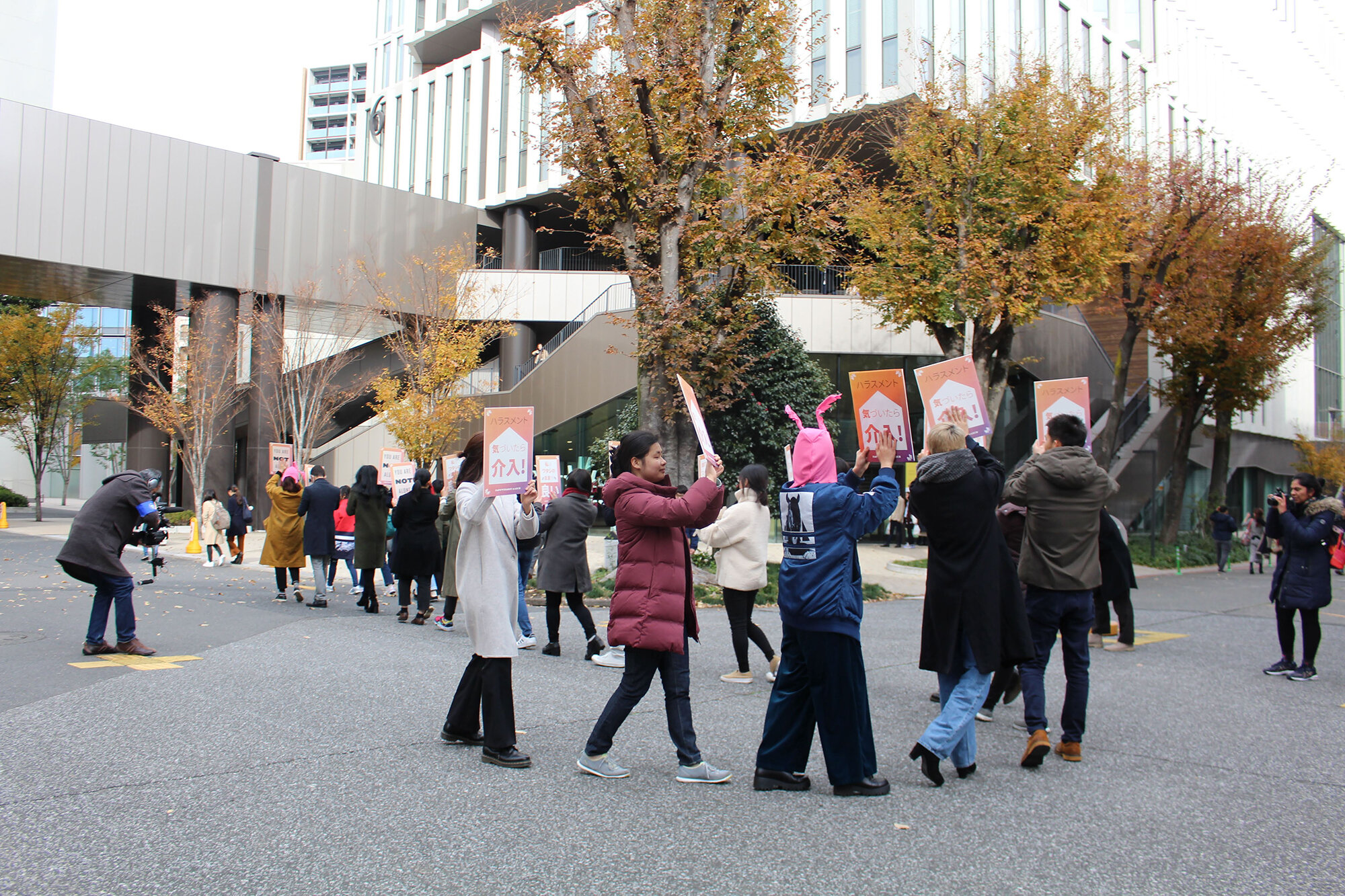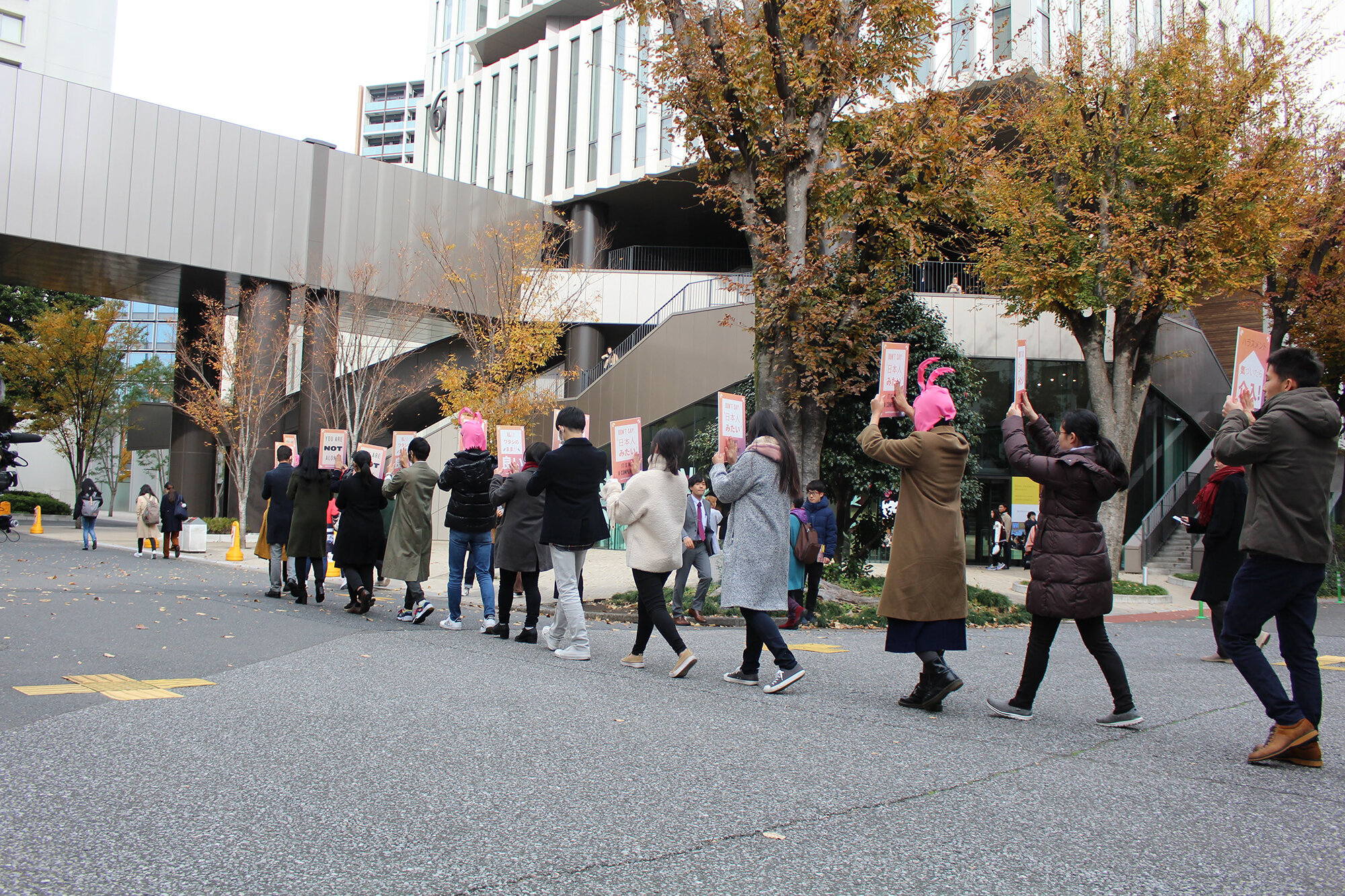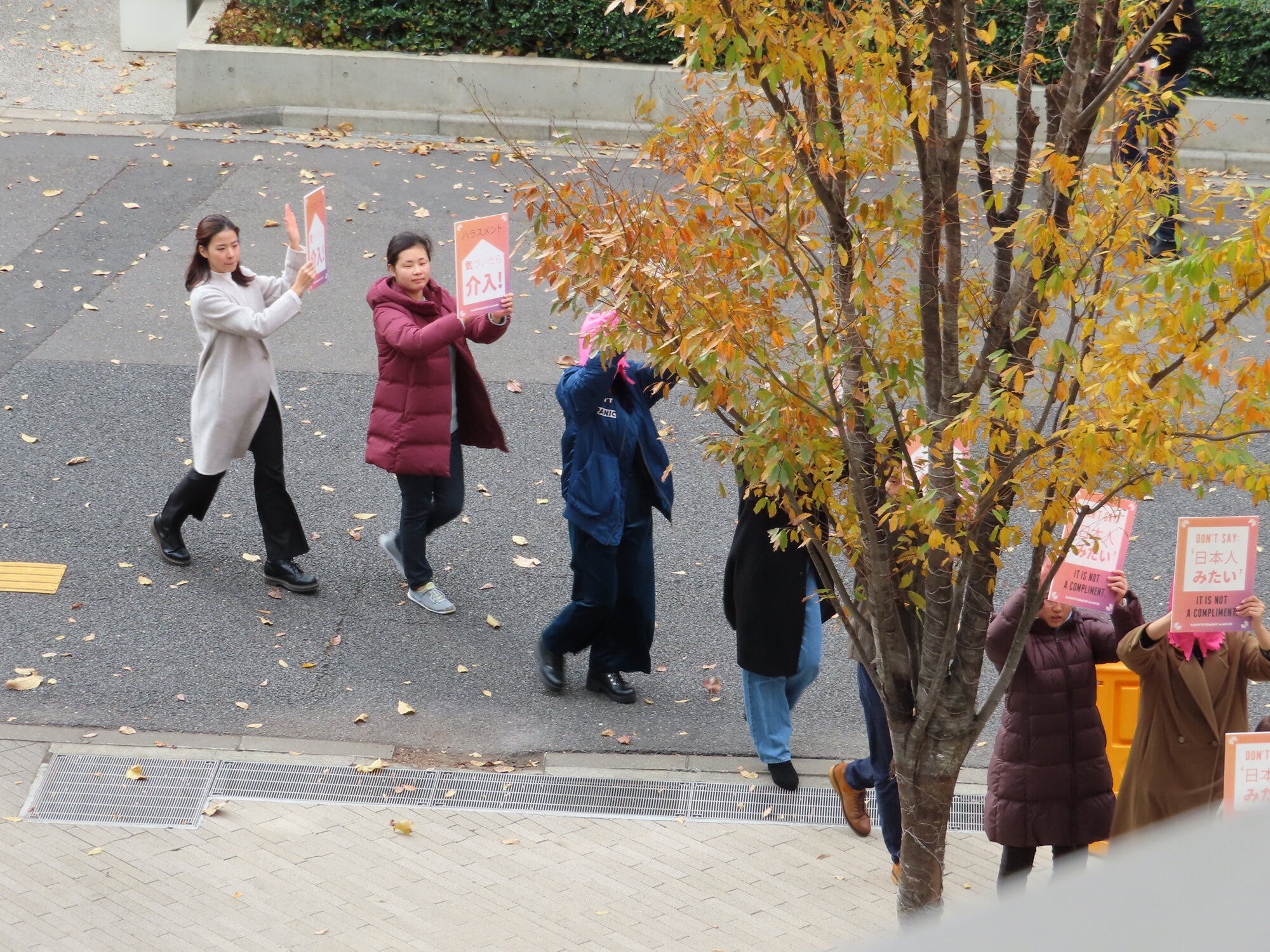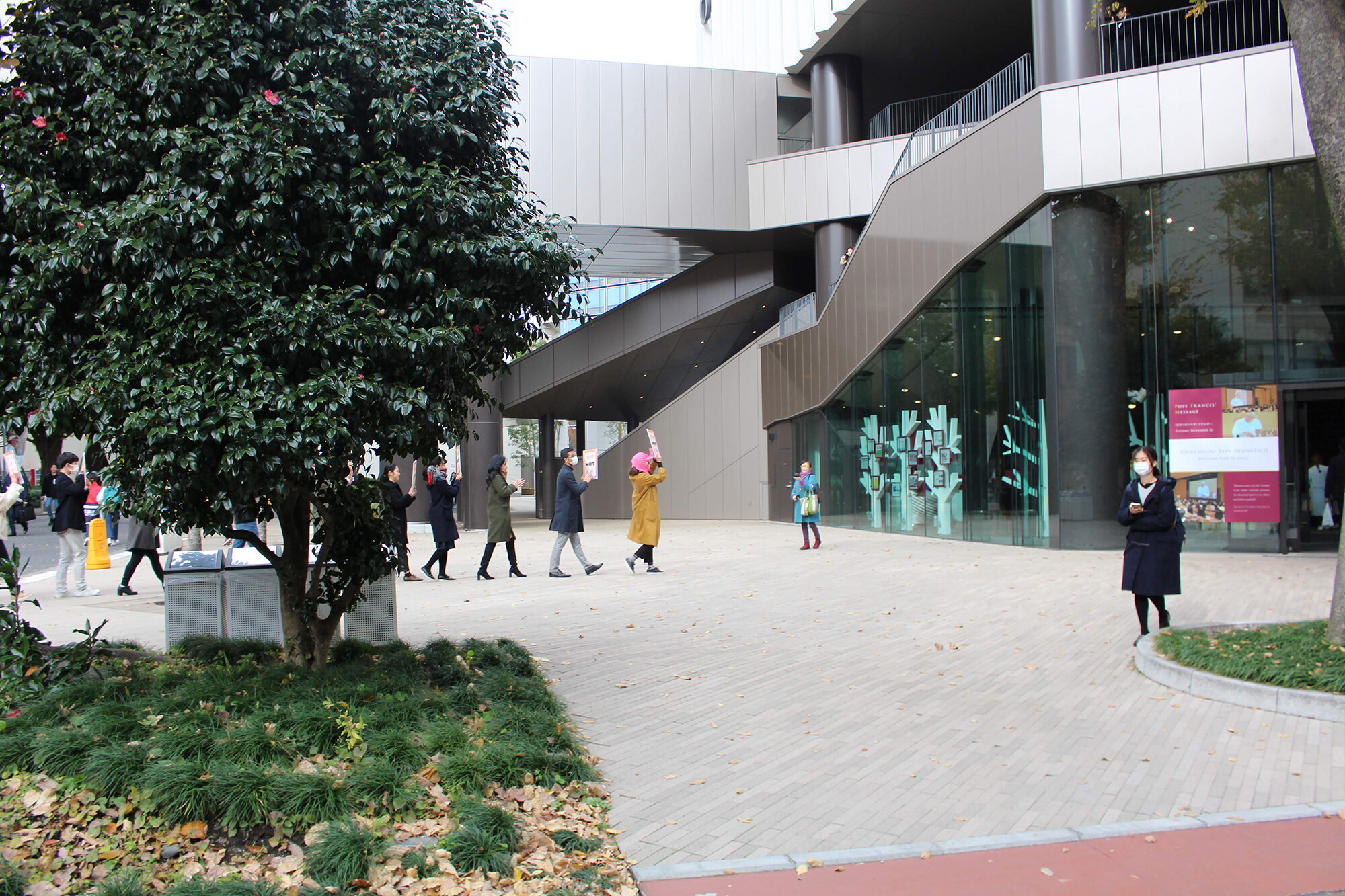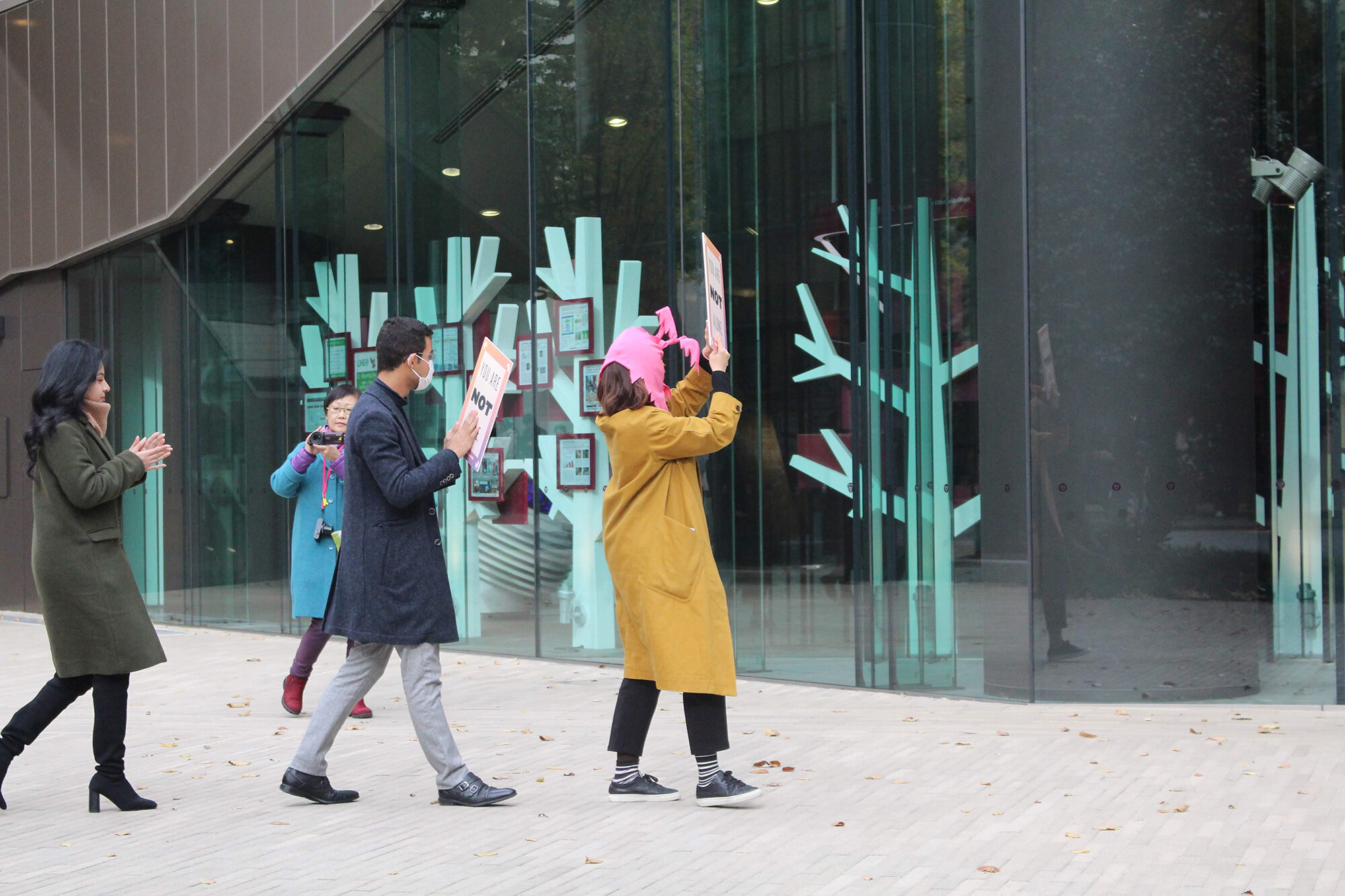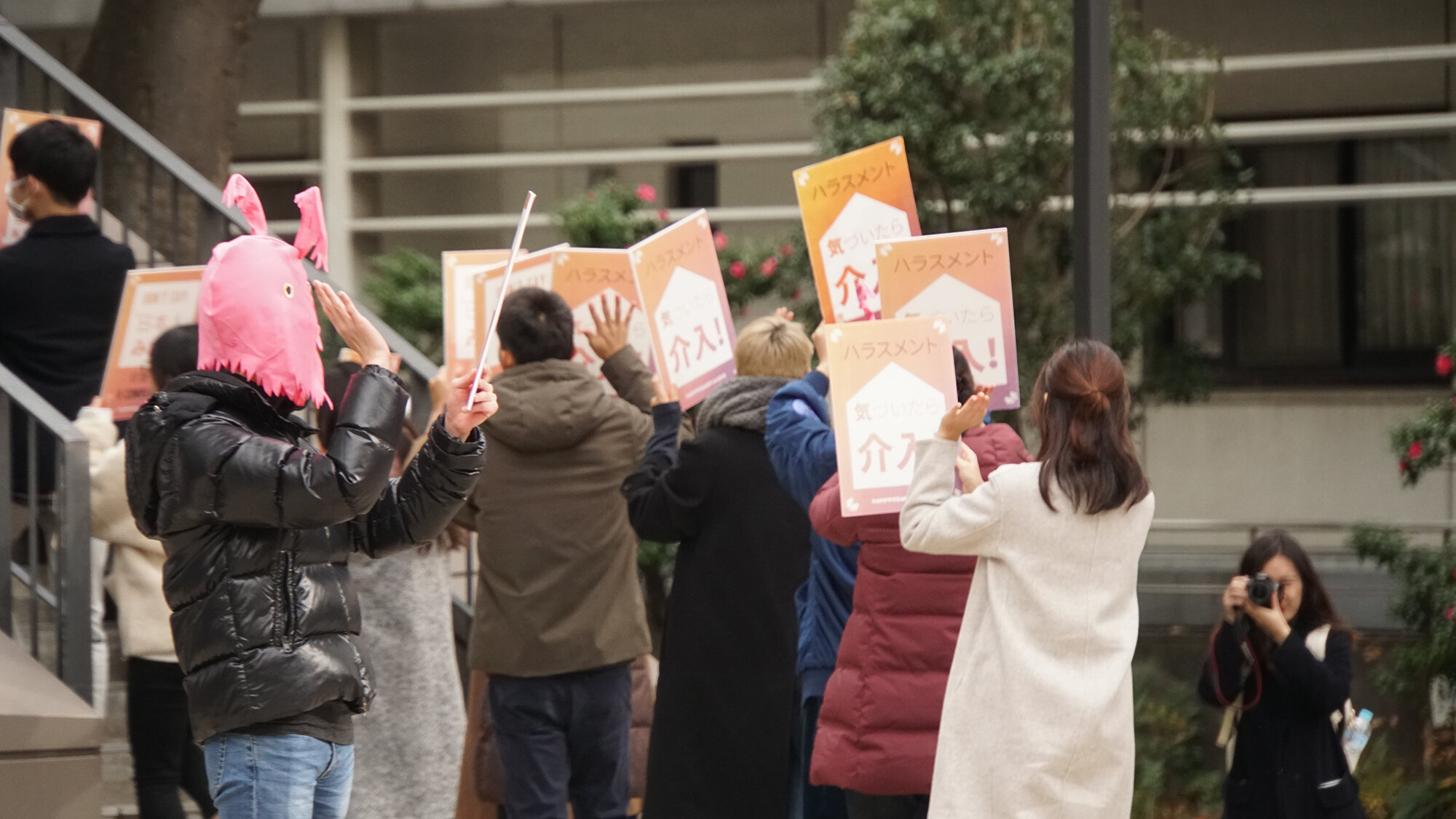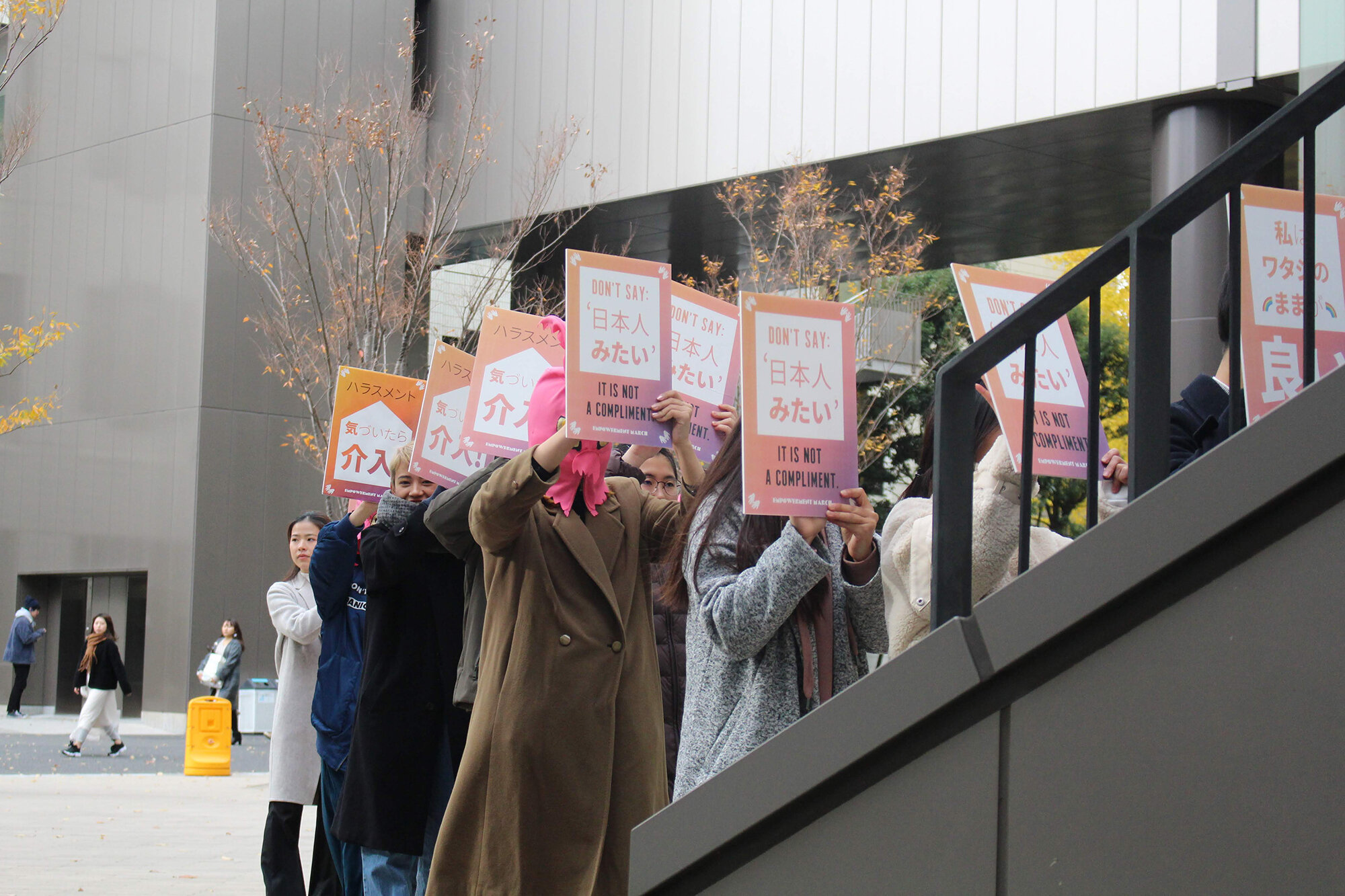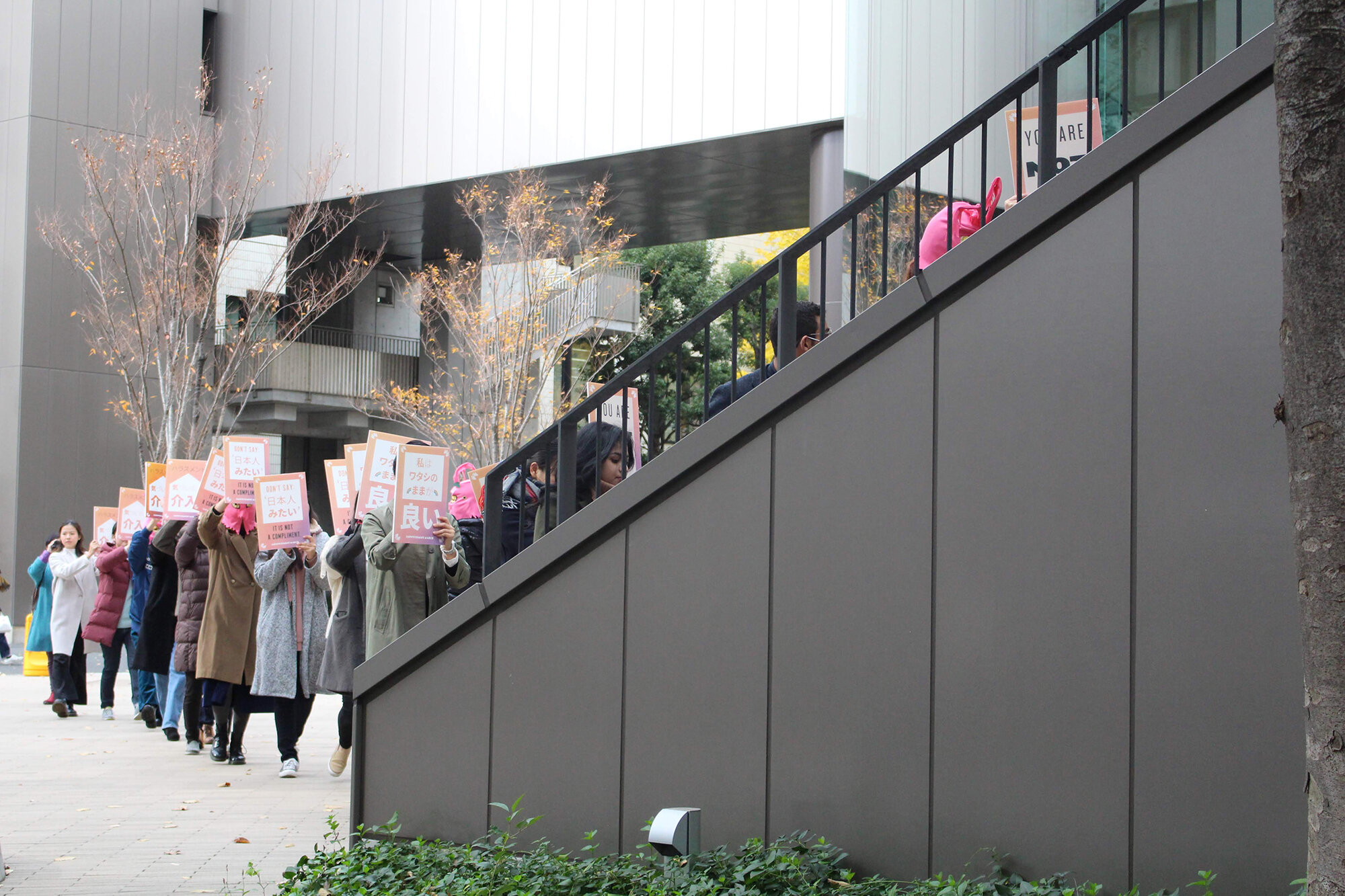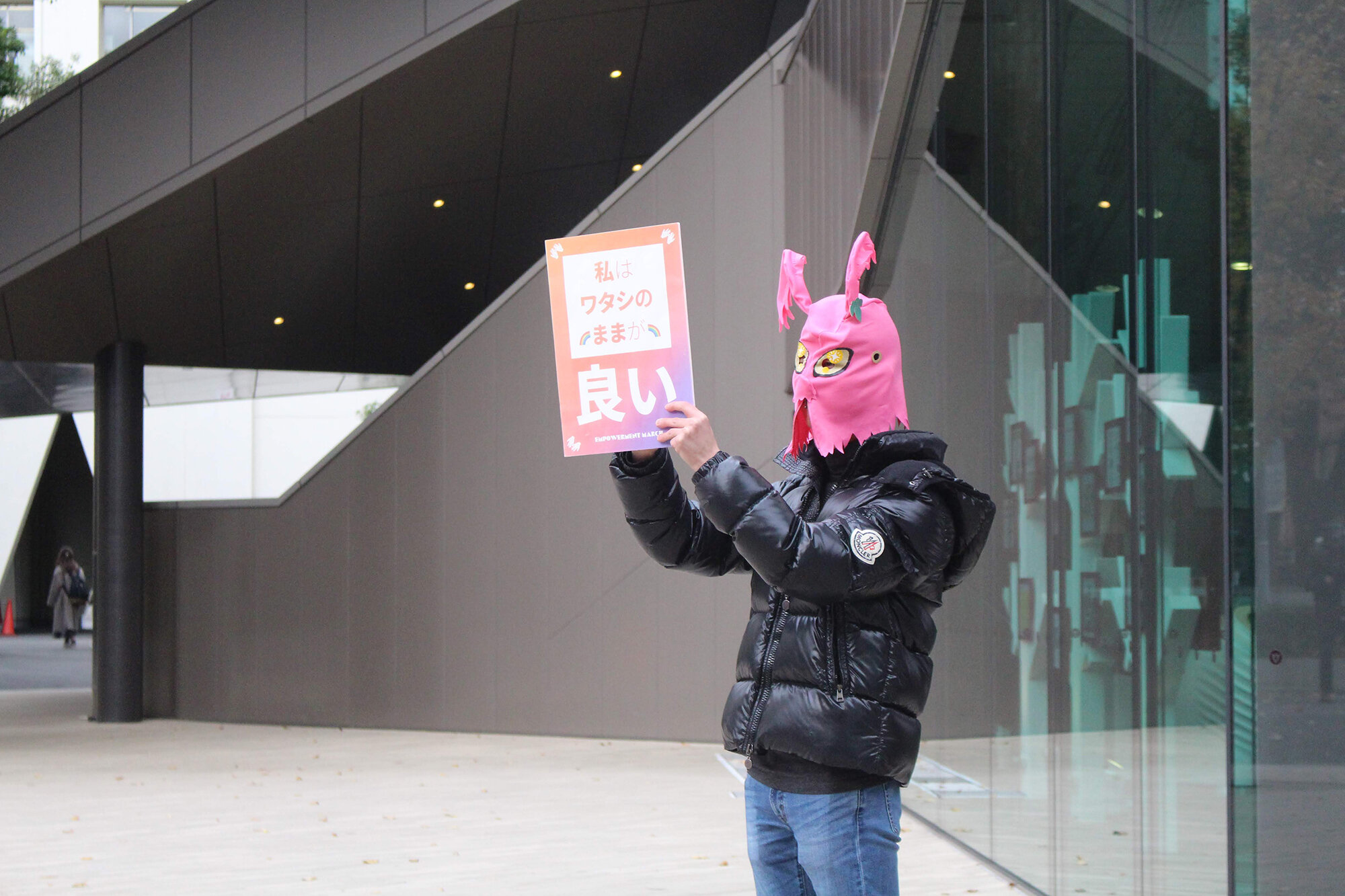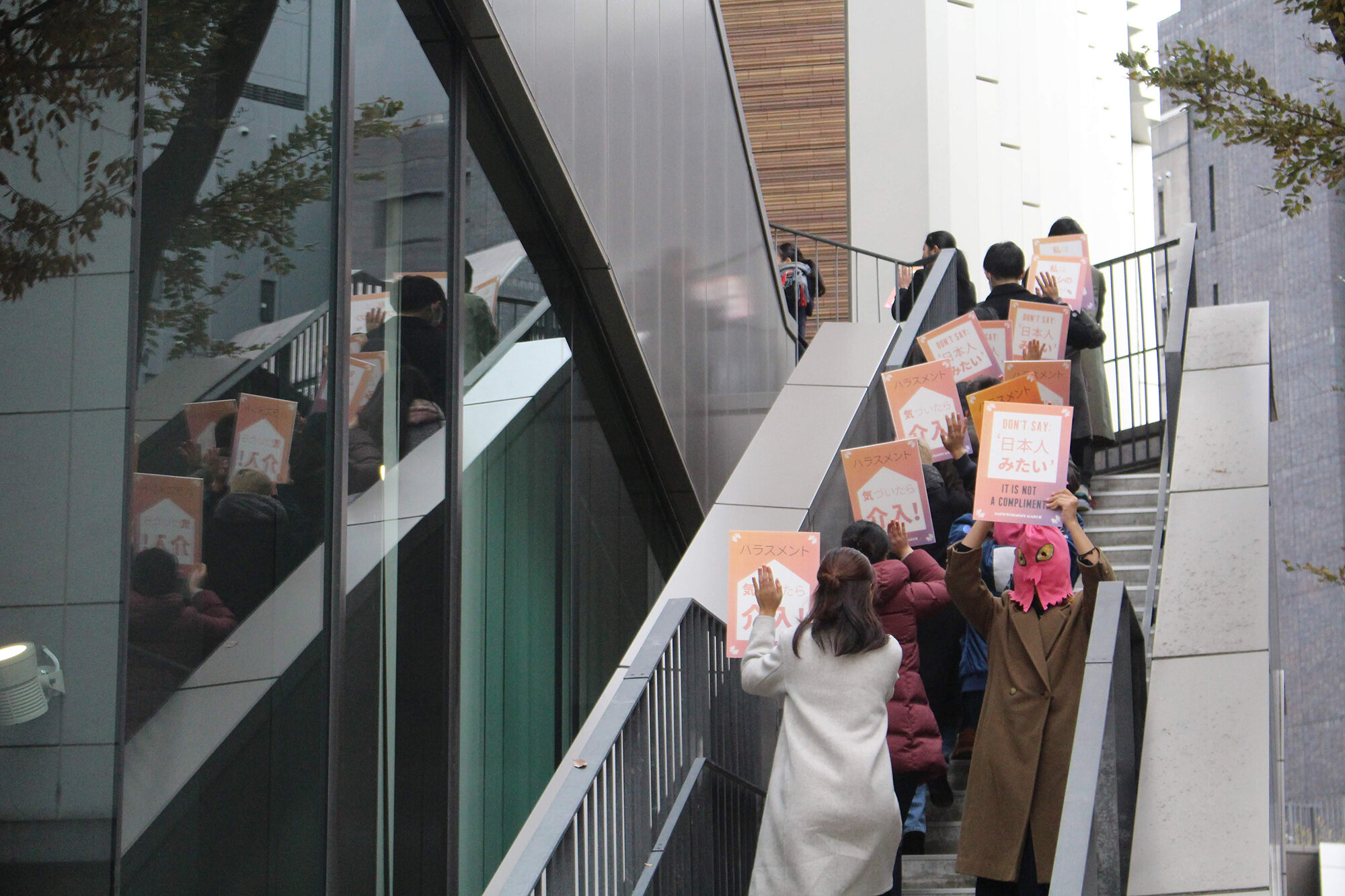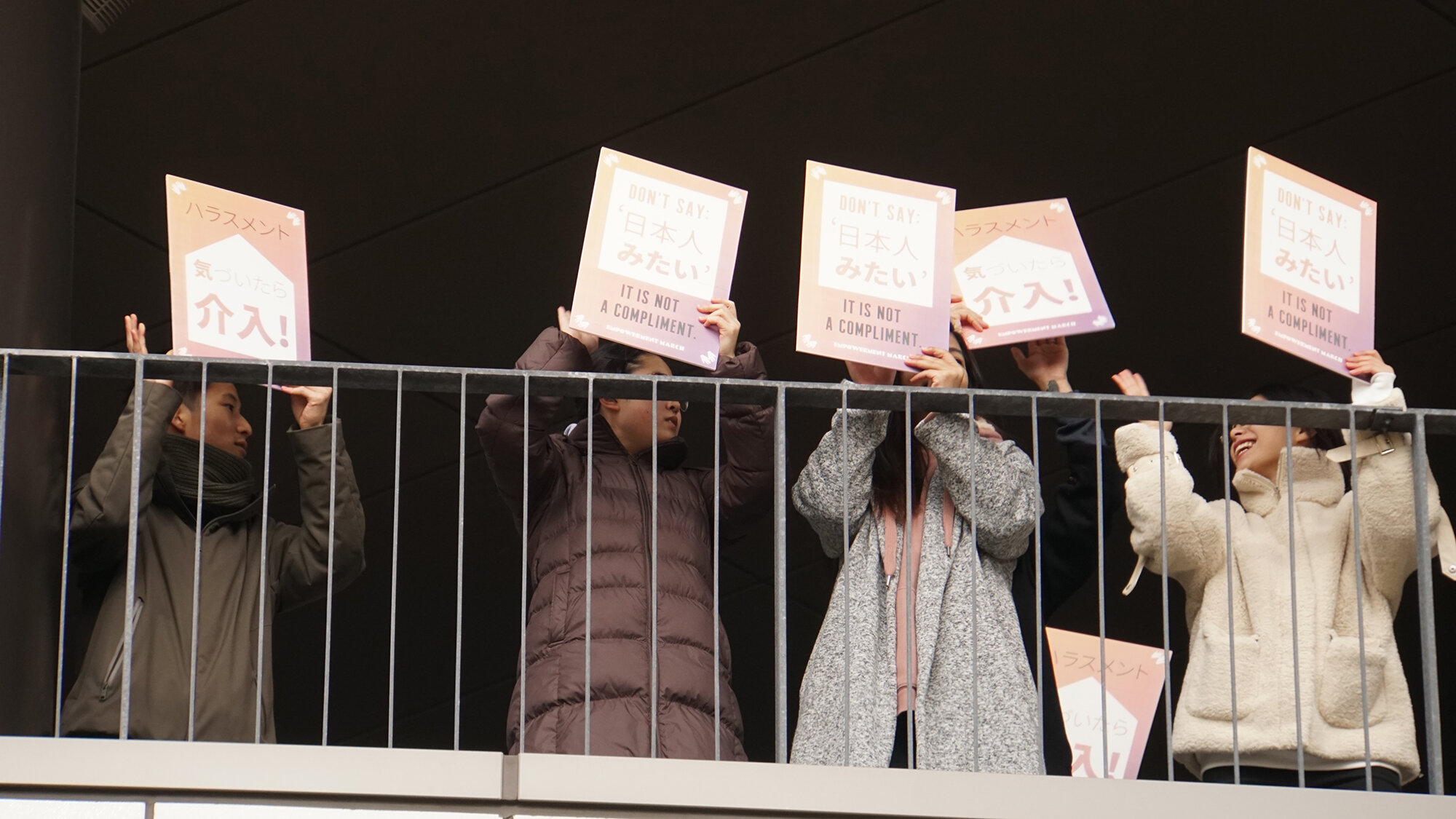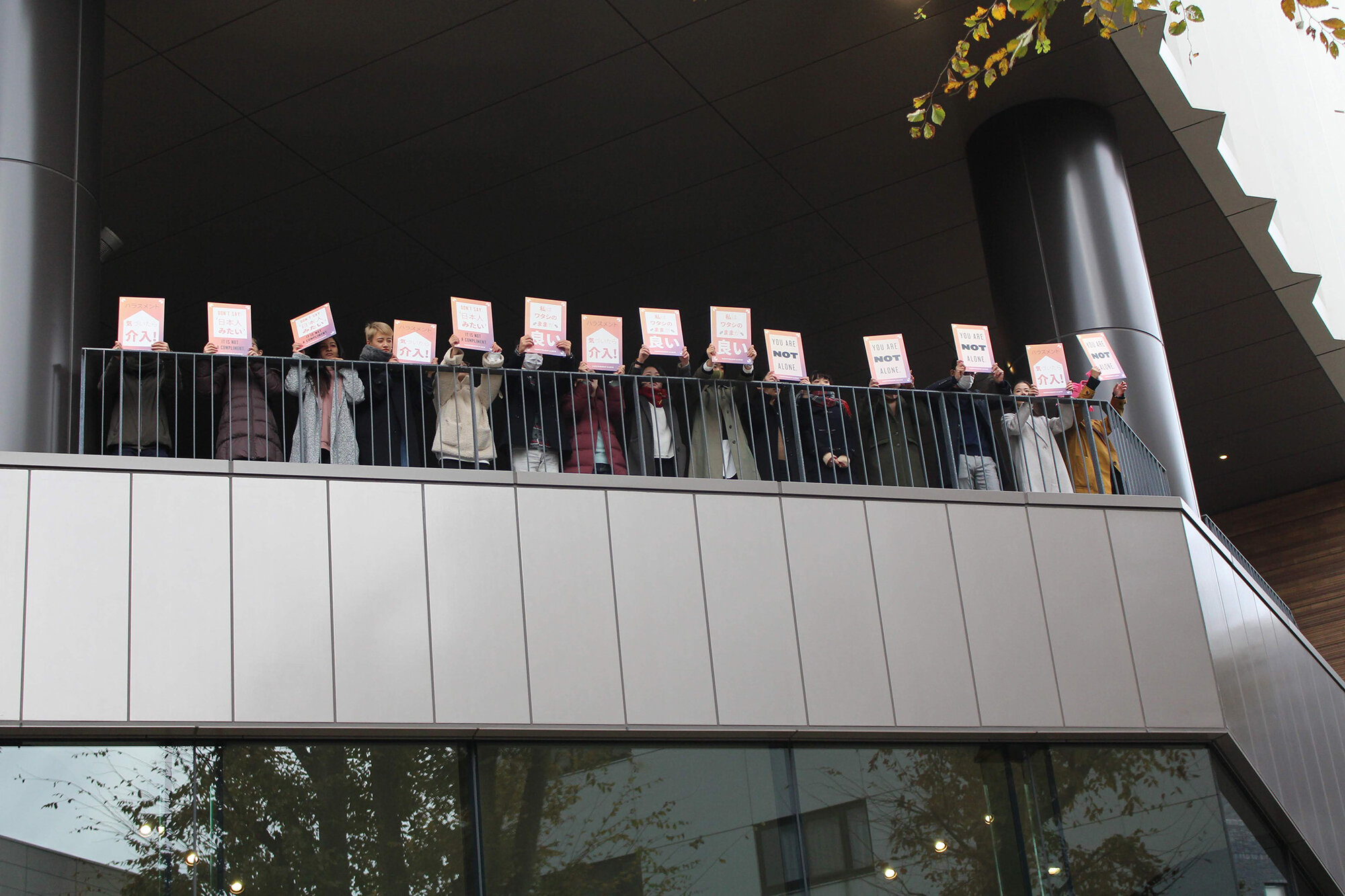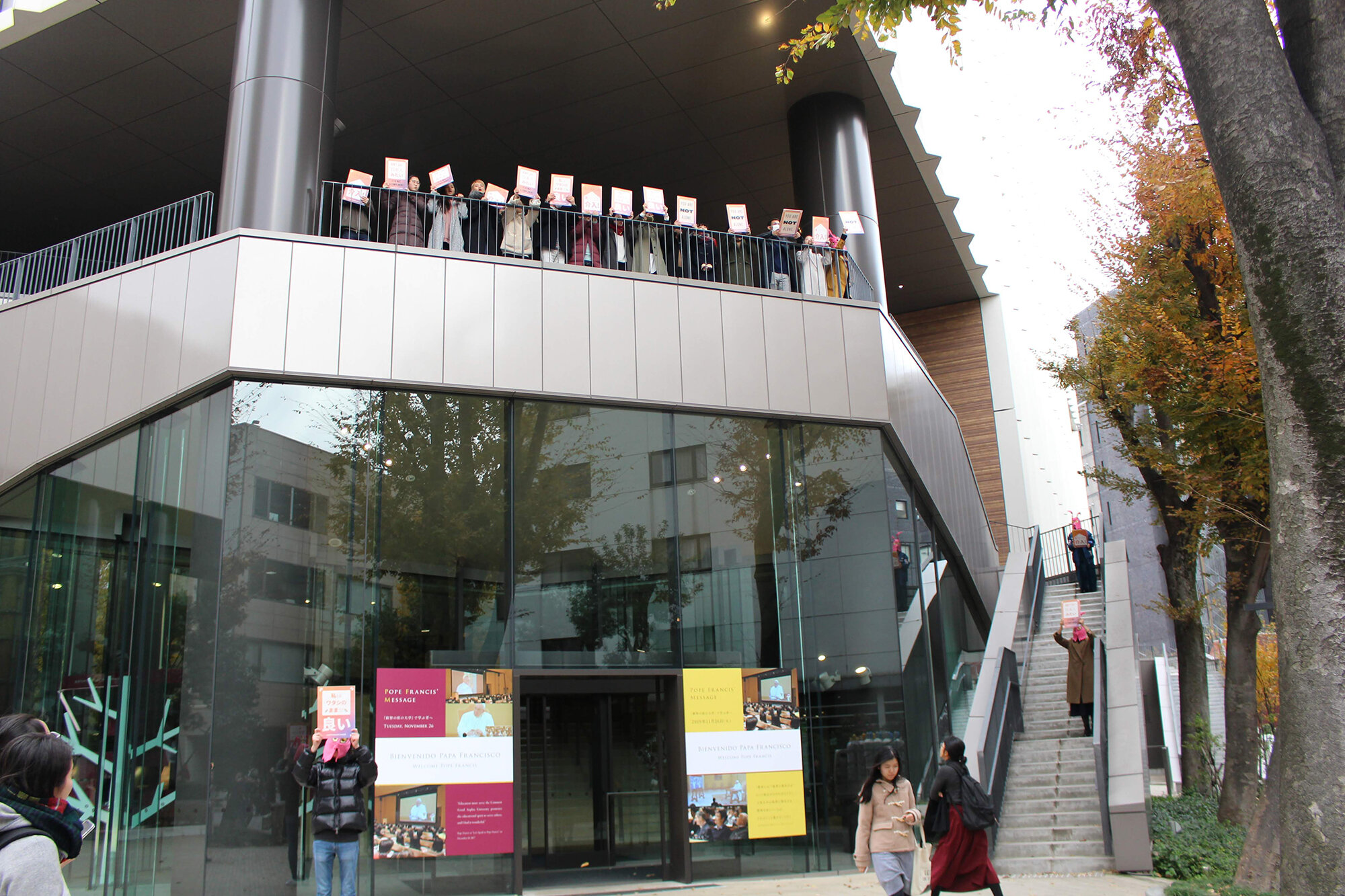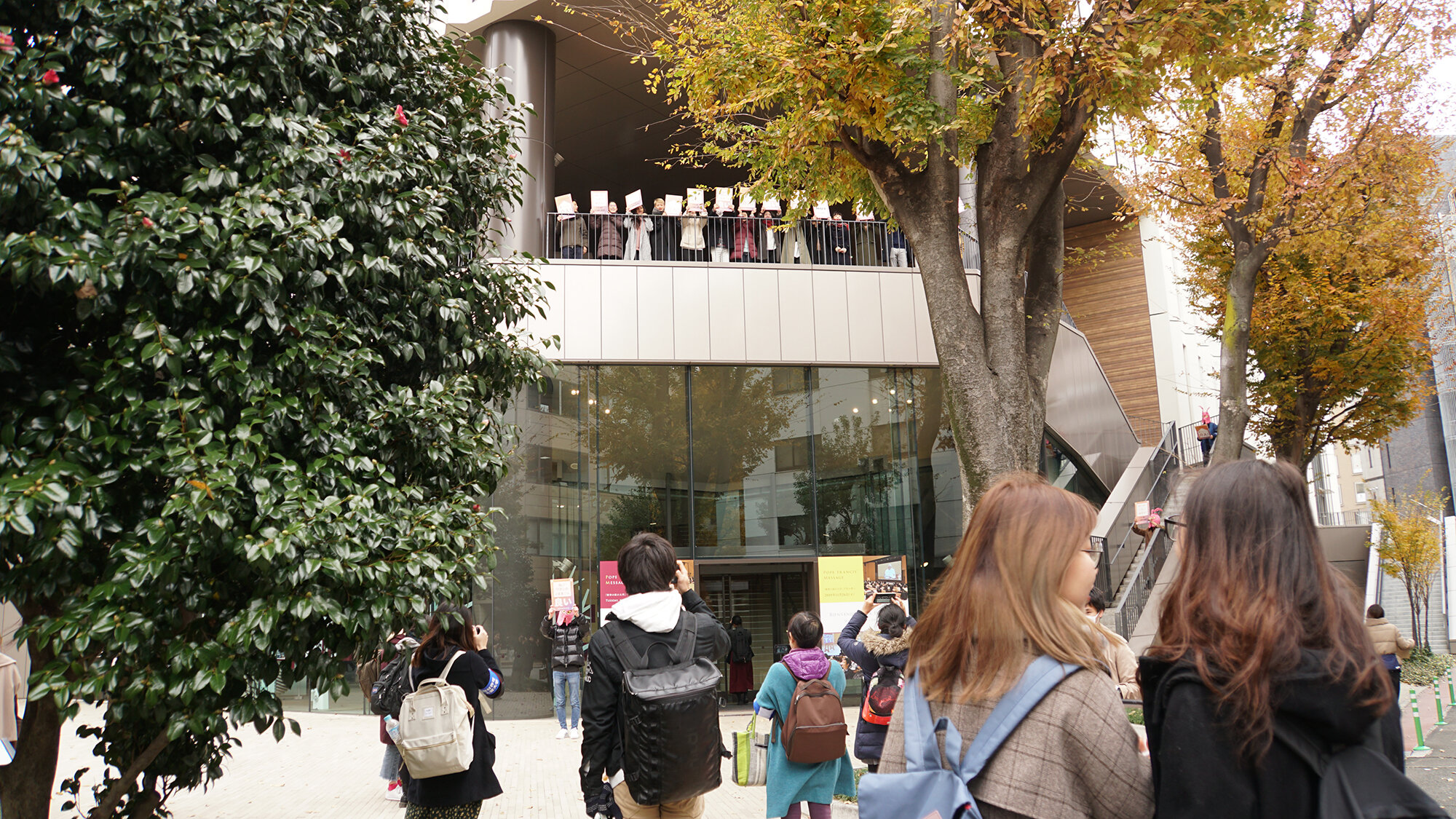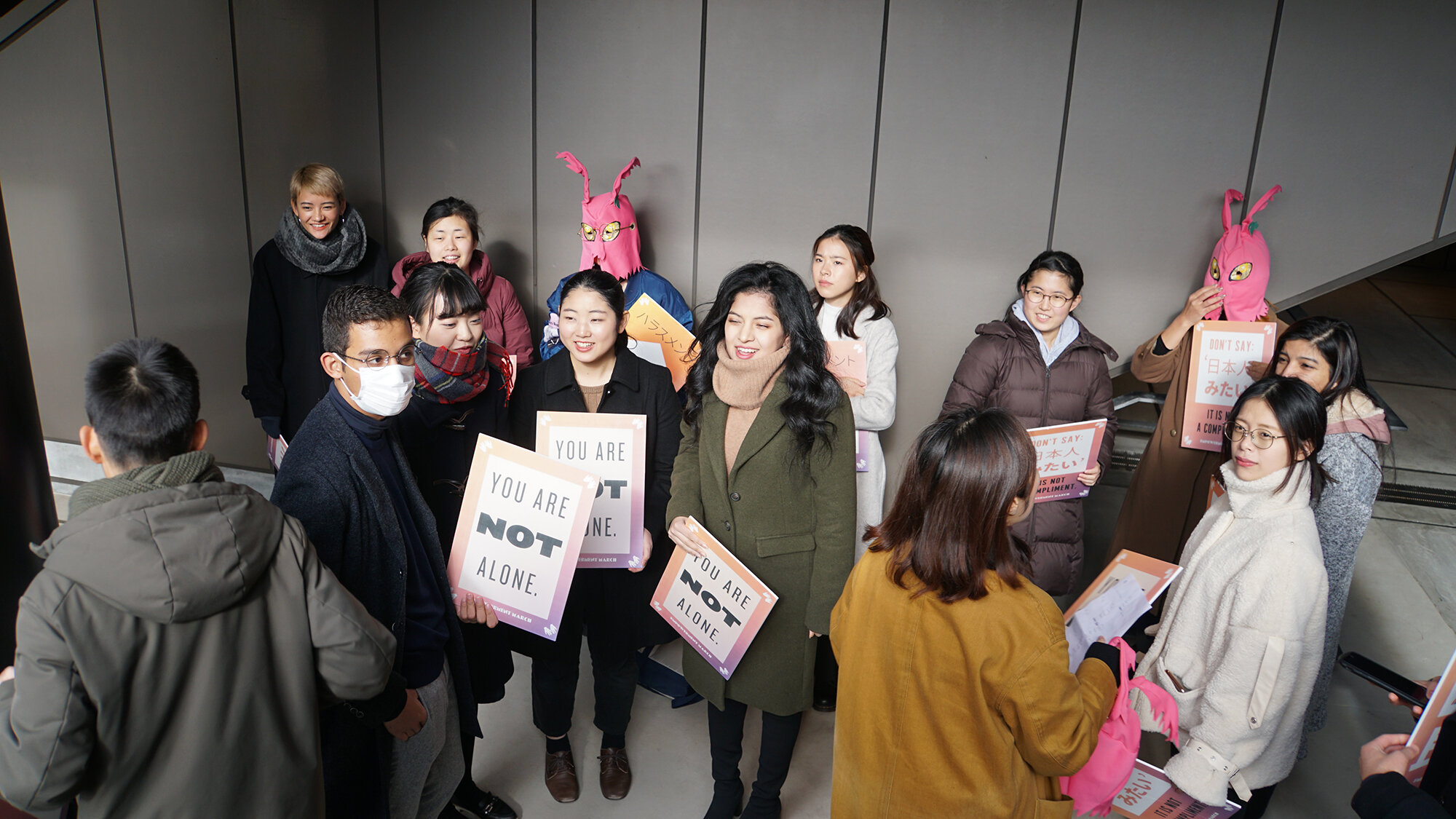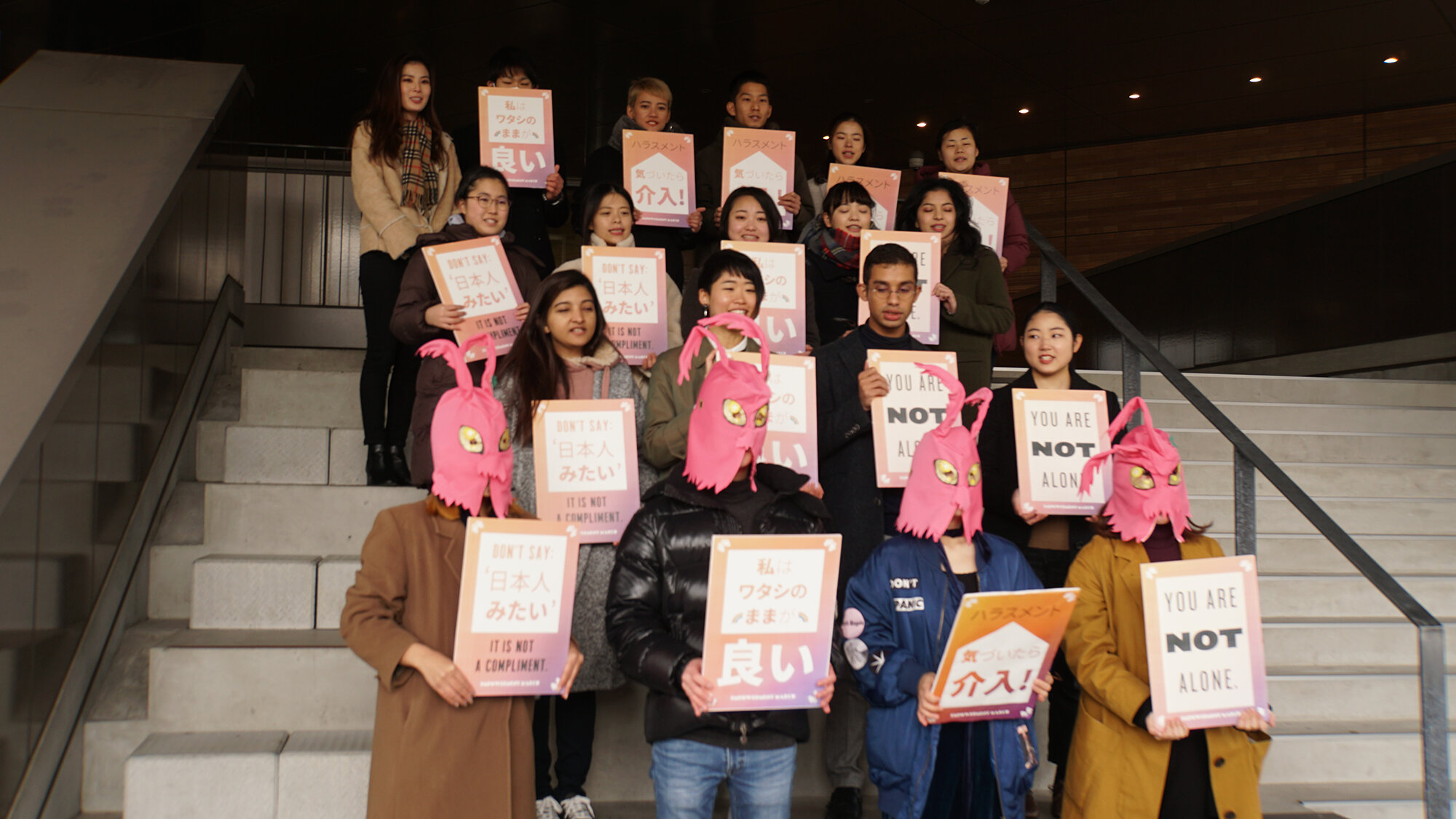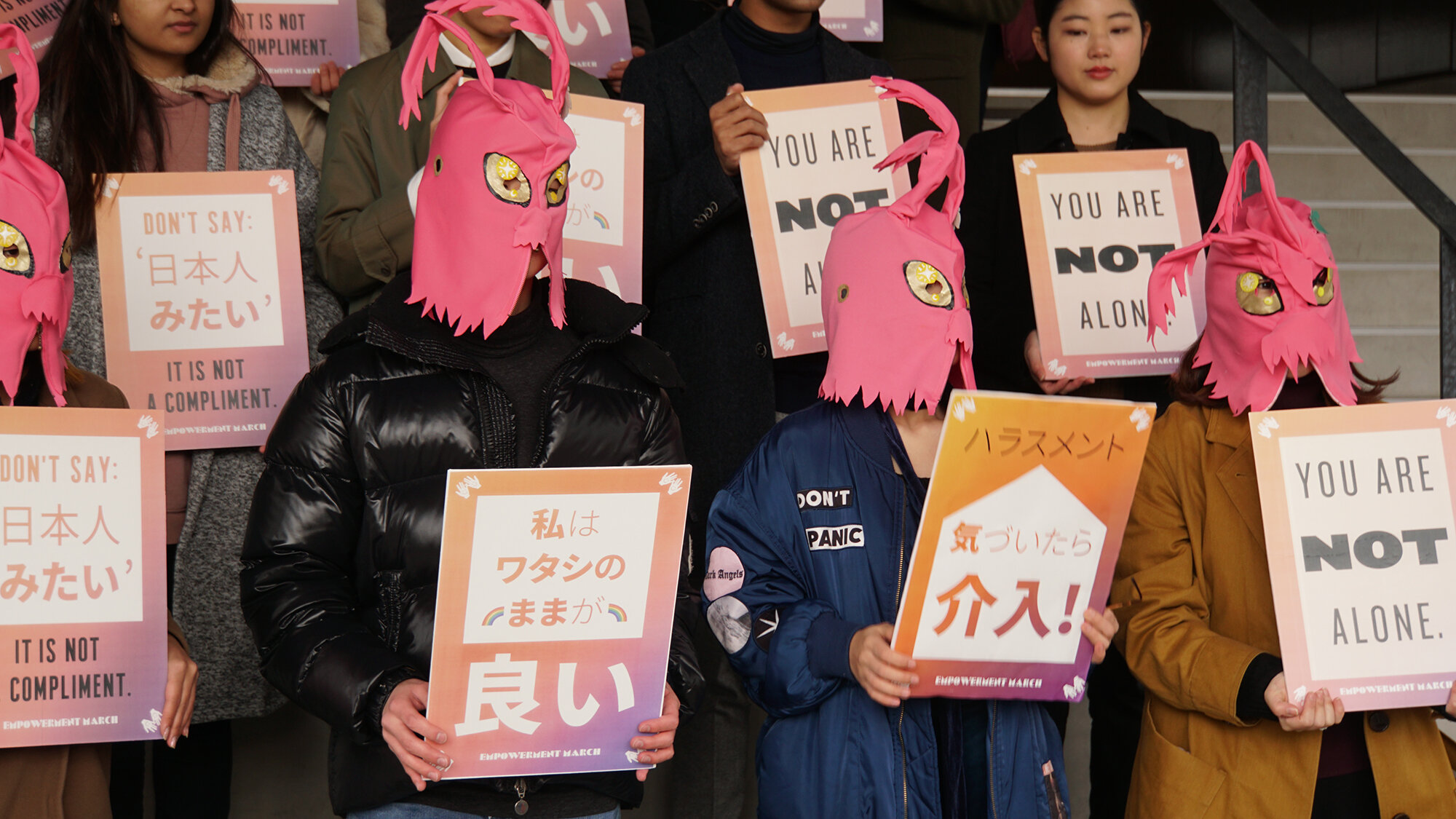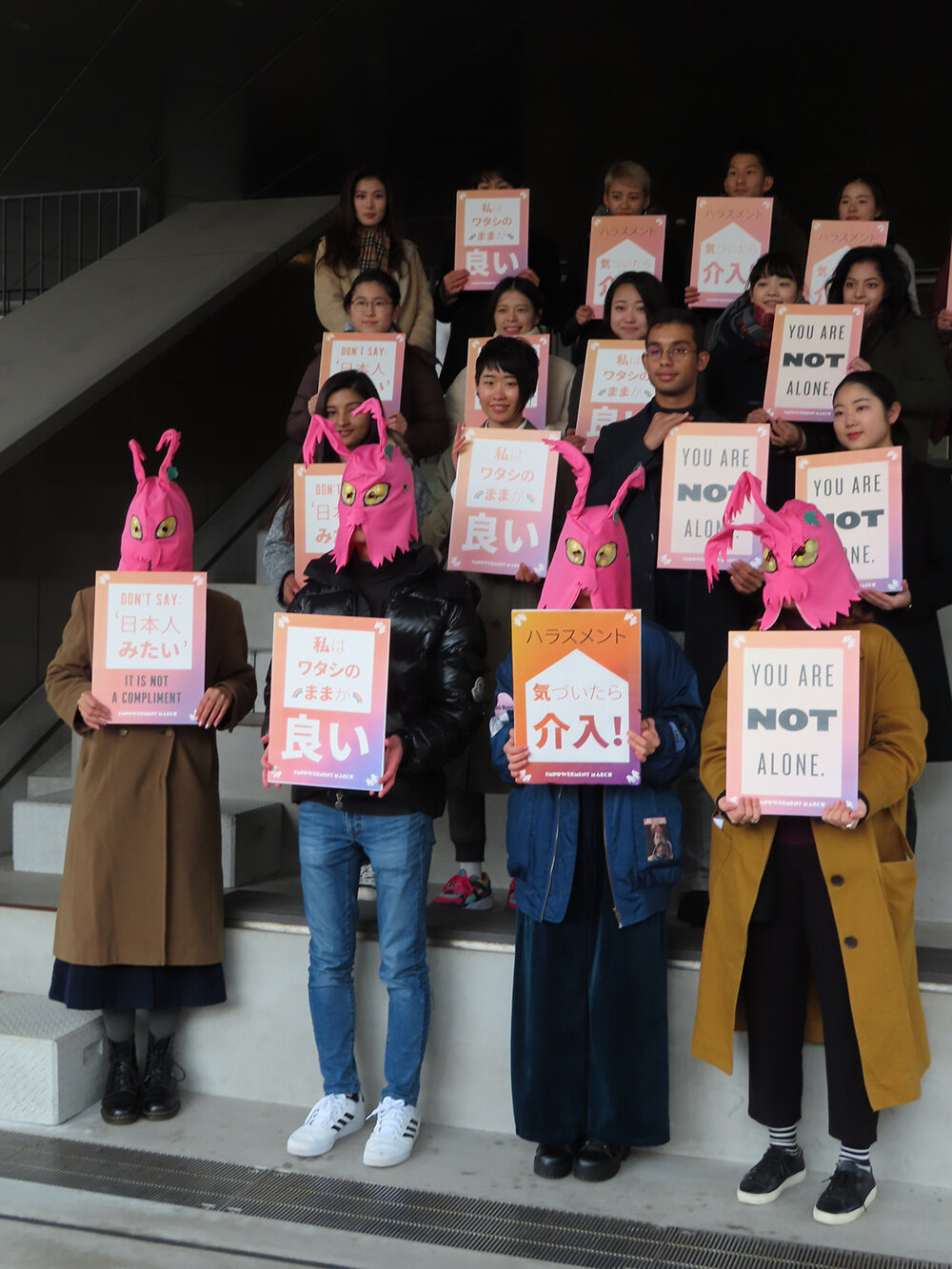On the 6th of December, 2019, Tomorrow Girls Troop (TGT) had a performance, Empowerment March at Sophia University in collaboration with the Institute of Global Concern (IGC). The performance was part of the IGC’s annual global festival, which was held between 11/25 (International Day Against Violence Against Women) to 12/10 (International Human Rights Day) in accordance with the Global 16 Days Campaign, 2019. Unlike previous IGC events that dealt with colonial issues on a global scale, this performance directed focus on local disempowerment issues within the campus. Additionally, a socially engaging art project called The Clothesline, , was installed on the campus. The work was created in collaboration with the Mexican artist Monica Mayer. It askes students and visitors to share their own experiences related to assault and harassment through writing notes and hanging on the ‘clothesline’.
In order to attract students’ active participation in the festival, TGT was invited to give a lecture and lead the march. Inspired by Girls Power Parade which took place in Omotesando in 2017, Professor Masako Tanaka from IGC asked TGT to perform with her students on campus. The new parade was planned with consideration to the unique context of Sophia University for elements of the performance, such as choreography and placard messages. TGT engaged with students to bring their attention to the power issues in school.
While preparing for the march, we held several meetings with professor Tanaka and her student, in order to understand the campus culture of Sophia university. We learned that Sophia university has a majority female population and a significant number of foreign students. This influences the campus life and power dynamics within it. Many students are from rich families that hold traditional values. It is common that female students of Sophia are expected to meet good spouses by attending the university. At the same time, a lot of students struggle from the peer pressure to follow a bourgeois lifestyle. We were also informed that some male students dropped out of school, because they couldn’t adjust to the campus culture. It seems like gender is not the main power struggle here, but is deeply intertwined with class issues. We also heard voices of foreign students who feel pressured to adjust to Japanese-ness.
Therefore, we decided to do an “all gender inclusive” empowerment march that corresponded to various power relationships within the campus. During our meeting with IGC, we came up with the questions:
Have you ever experienced or witnessed any cases of harassment, violence or exclusion around you on the campus of Sophia University? What was it? How did it happen?
What made you feel most unpleasant or hurt by others when on-campus or off-campus?
What could you have done when you felt unpleasant or hurt by others?
Do you do anything to fight against harassment, violence, or exclusion in your daily life? What do you think you can do about it? And, what are you going to do from now?
By asking these questions we hope students could face their vulnerabilities and share them with fellow students. Choosing the right messages for the placards was the most important task for the performance. IGC held a survey for the students and collected a good number of students’ responses.
After heated discussions among TGT members, professor Tanaka, and student leader of IGC, we came up with four placard messages.
(1) If you notice harassment, intervene!
(2) You are not alone
(3) I am happy with who I am
(4) Don’t say “you are like Japanese”. It is not a compliment
These messages represent the following categories that we wanted to address.
(1), (2) Messages related to the majority of students and campus culture. We hope this message allows people to think about power dynamics in daily life.
(3) A message related to LGBTQ that could be also held by allies.
(4) A message related to foreign students that could be also held by allies.
For (2), we initially planned to have a message that is explicit to feminism. In the end, we chose a more general and inclusive message.
(1)-(4) left to right, top to bottom
1. If you notice harassment, intervene! 2. You are not alone 3. I am happy with who I am 4. Don’t say “you are like Japanese”. It is not a compliment
On the 6th of December, the performance was held during lunch break at the intersection in the center of the campus. We had three TGT members and 14 students participating in the performance. The students were a mixed group of various nationalities and genders. By executing guerrilla style and actively utilizing the architecture of the campus, we were able to gain attention from passersby. Among all, we find it most meaningful that students were able to feel empowered themselves through this event.
Please take a look at the video on the top of the page shared by IGC, which presents students’ feedback on the performance!!
photography by Masako Tanaka, Ryota Yokoyama, Miino Kurita
